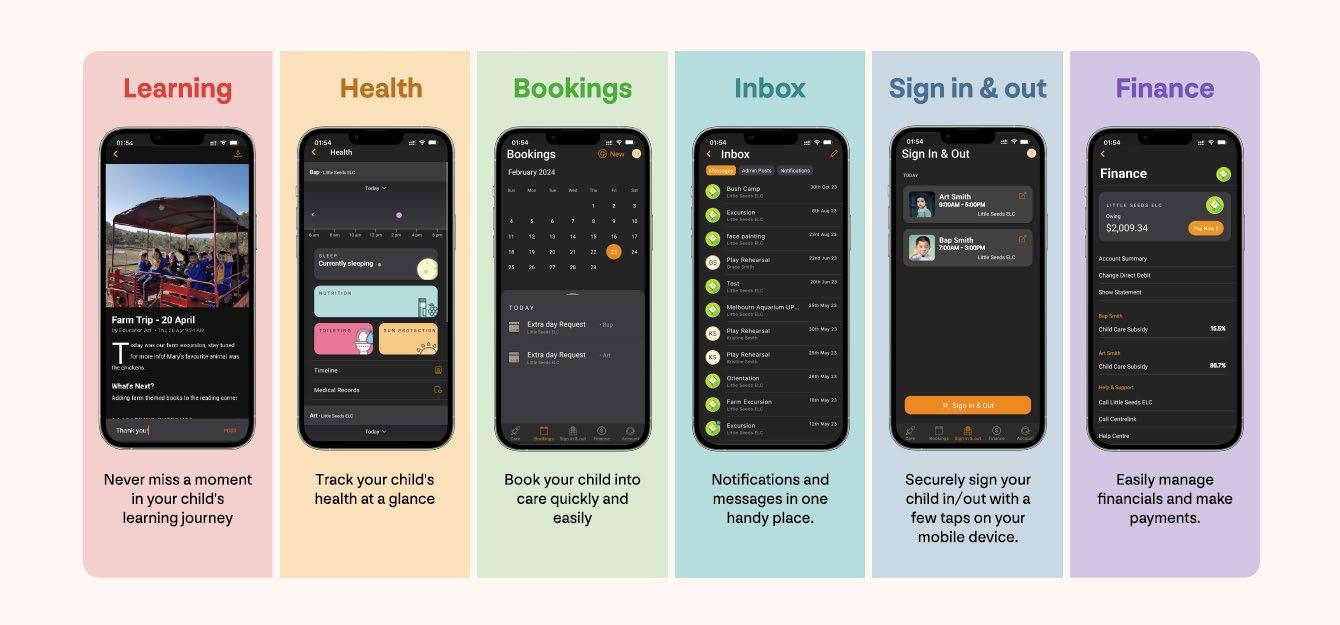

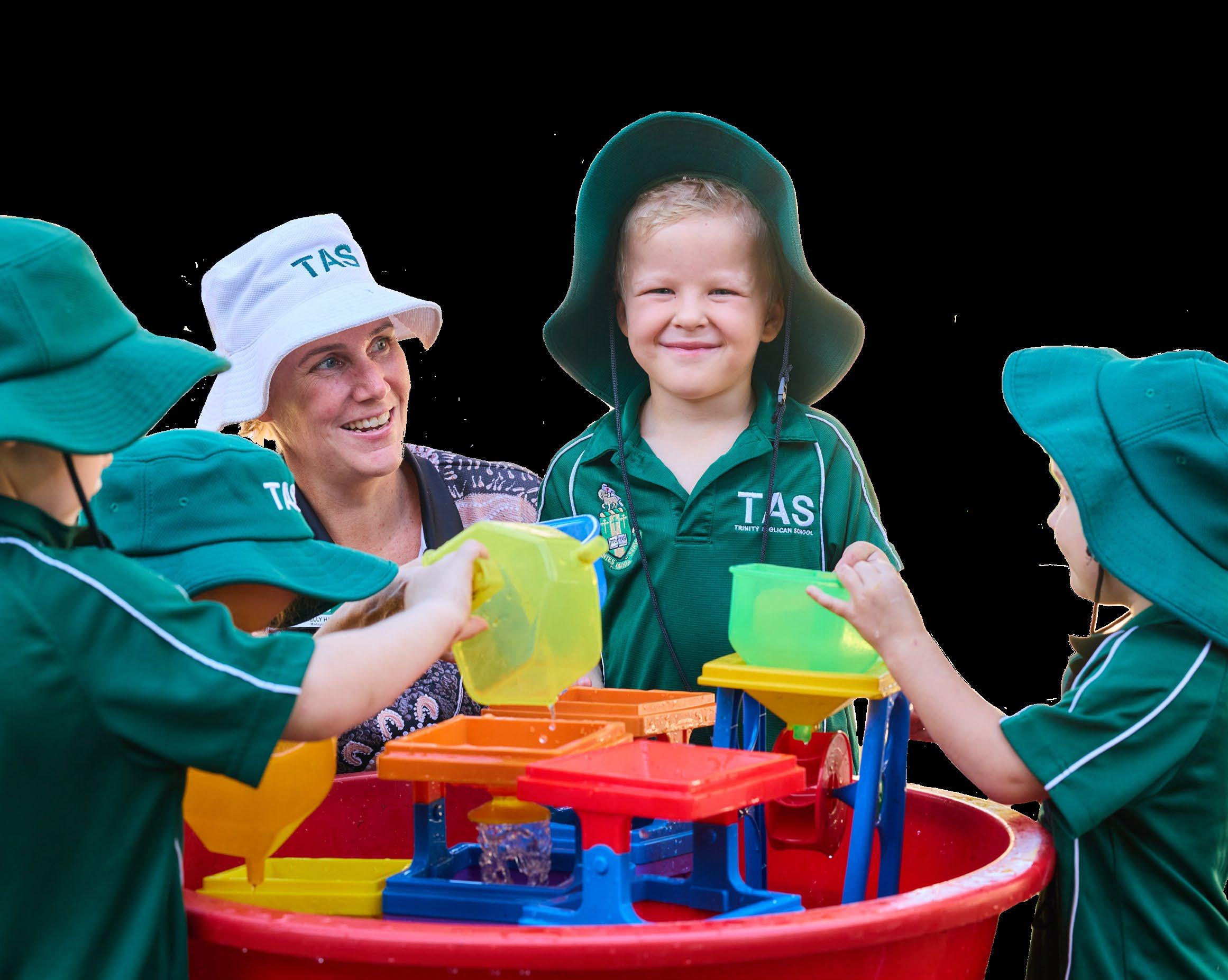










Trinity Anglican School (TAS) Early Learning Centre (ELC) acknowledges and pays our respects to the Traditional Custodians of the lands on which our centres are located, and to their enduring connection to Land, Sea, and Community. We pay our respects to Elders past, present, and emerging.
Our campuses and early learning centres stand on lands where Australia’s First Nations Peoples have been teaching and learning the ways of belonging, being, and becoming for more than 65,000 years. Their deep knowledge systems and cultural practices continue to enrich and guide how we learn together today.
Our learning communities have been, and will continue to be, shaped by the wisdom, perspectives, and contributions of Aboriginal and Torres Strait Islander Peoples. We recognise that honouring these histories and connections to land, sea, and sky deepens the learning of all. It is a great privilege to learn from, and with, the world’s oldest living and thriving cultures as we walk together toward a better future for all.
Through our curriculum and daily practice, we actively promote fairness, empowerment, and respect. Educators thoughtfully embed First Nations perspectives across our programs to ensure these values are reflected in the experiences of every child and family.
“Honouring our past, to teach our present, to create our future.”
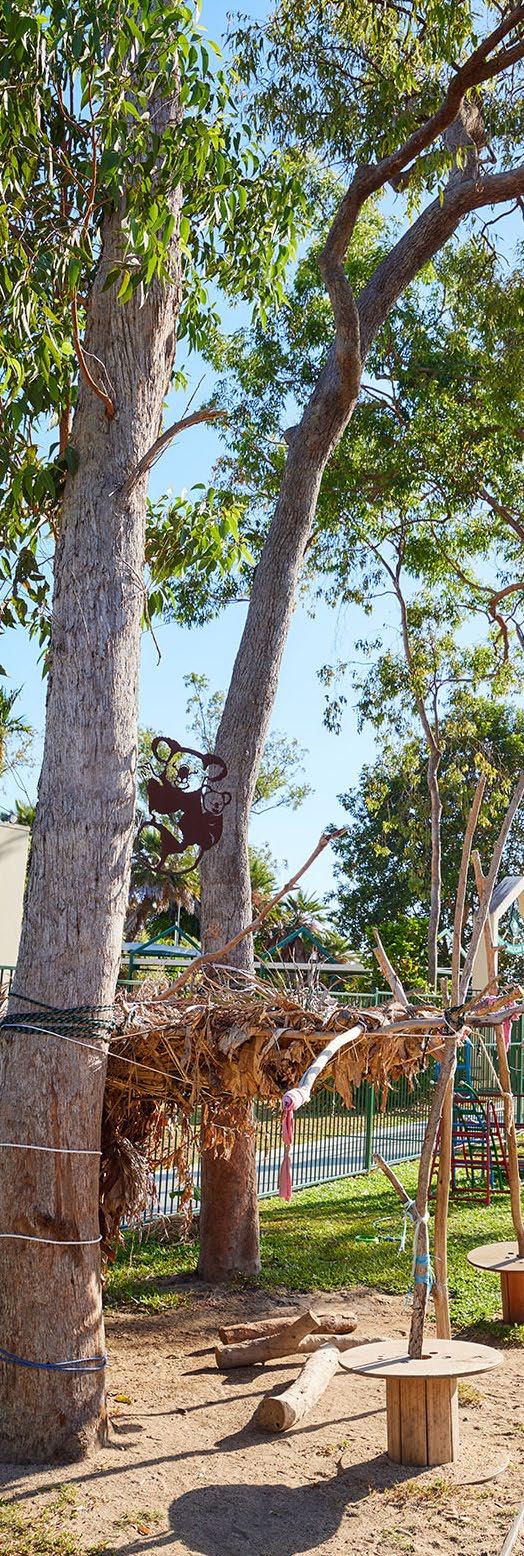
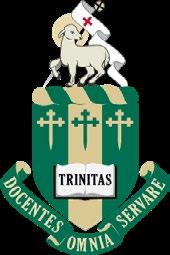
TAS operates two Early Learning Centres, located at our Kewarra Beach and White Rock campuses.
Both Centres are open Monday to Friday, 50 weeks per year, closing for two weeks over the Christmas period and on Queensland public holidays. Advance notice will always be provided for these closure dates.
Approved Provider: Trinity Anglican School
Area Manager: Darren Morrissy, Business Services
Early Childhood Education and Care Manager: Kelly Hendle
White Rock Nominated Supervisor: Gwendeline Targett
Kewarra Beach Nominated Supervisor: Megan Turner
WHITE ROCK
EARLY LEARNING CENTRE
Location: 4-54 Sheehy Road, White Rock
Hours: 7:30 am – 5:30 pm
Email: Kindy-wr@tas.qld.edu.au
Kindy: 0460 005 679
Pre-Kindy: 0477 244 325
REGULATORY AUTHORITY: DEPARTMENT OF EDUCATION AND TRAINING
PO Box 15033, City East QLD 4002
Phone: 13 74 68
Email: ecec@deta.gov.au
KEWARRA BEACH EARLY LEARNING CENTRE
Location: 45 Poolwood Road, Kewarra Beach
Hours: 7:30 am – 5:30 pm
Email: Kindy-kb@tas.qld.edu.au
Kindy: 0409 624 156
Pre-Kindy: 0439 164 983
OFFICE OF EARLY CHILDHOOD EDUCATION AND CARE: CAIRNS REGIONAL OFFICE
PO Box 6094, Cairns, 4870
Phone: 4037 3911
Email: cairns.ecra@qed.qld.gov.au

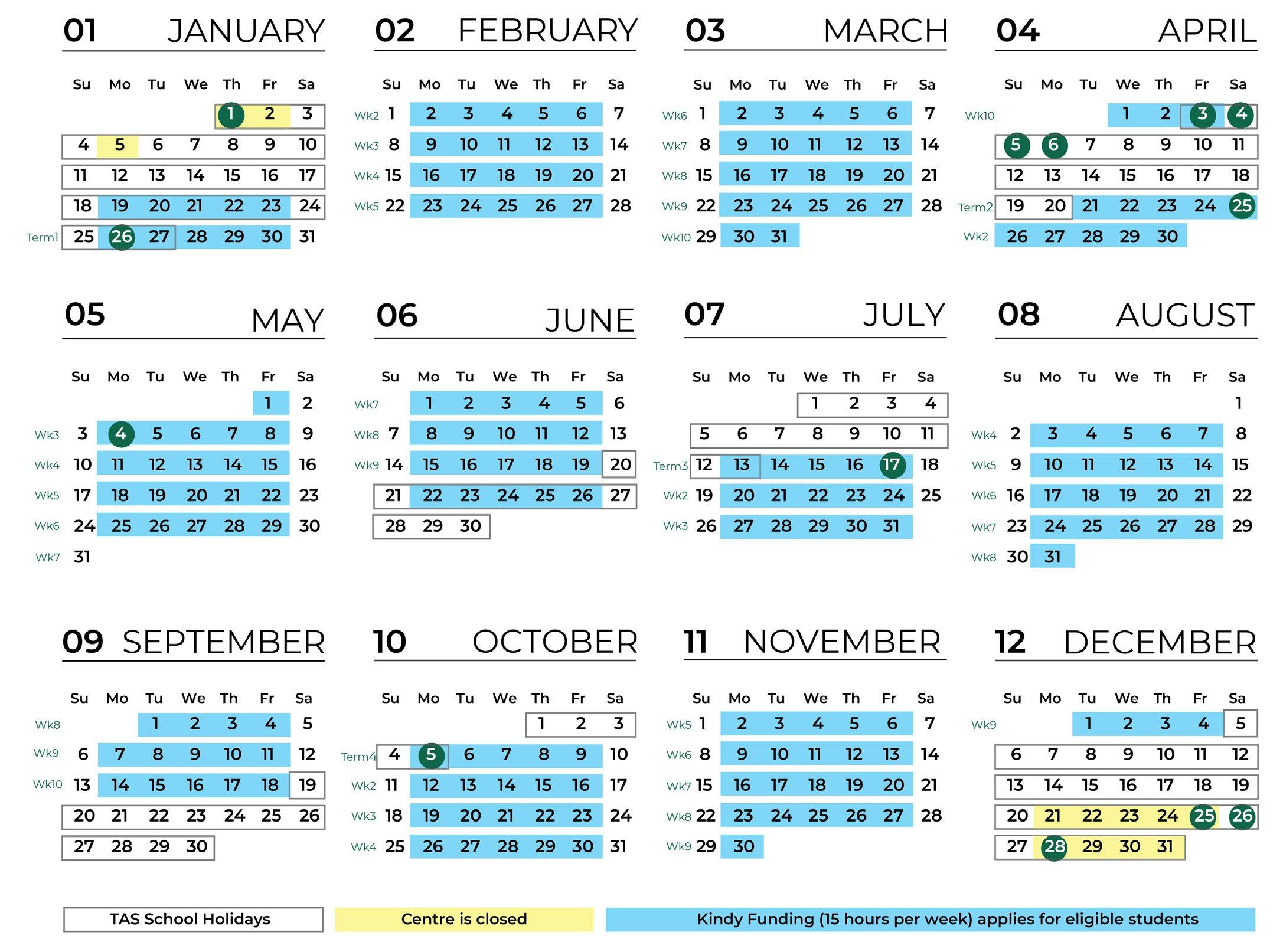

Tear this page out & keep it on your fridge.

Orientation is an important first step in helping your child and family feel connected to our Service. We encourage each family and child to attend our annual stay and play session at the end of the year. This provides crucial time for your child to become familiar with our program, environment, daily routines and to meet our educators. It also gives educators the opportunity to learn more about your child and how we can best support their transition and settling-in period.
If you are unable to attend the Stay and Play session, the Nominated Supervisor will contact you to arrange a suitable time for you to visit. If your child is reluctant to attend, please discuss this with their assigned educator so that we can develop strategies together to support the transition from home to the Service.
We also offer the option of developing a personalised visual schedule to support children who benefit from structured routines and visual cues. Additionally, some children enjoy borrowing a book from our library to take home and return on their next visit. This can help build a sense of connection and continuity between home and the centre.
The first day in a new environment can be a big step for both you and your child. Some children may experience separation anxiety, which is completely normal. Our experienced educators will support you and your child through this period with care and reassurance.
We recommend establishing a consistent drop-off routine during orientation. A calm, organised morning helps your child start the day positively. When saying goodbye, please let your child know you are leaving and reassure them of when you will return. This builds trust and supports their sense of security.
Most children settle quickly once parents have left and begin exploring the room, engaging with activities and peers. Our educators will contact you if your child becomes distressed and will provide regular updates through Xplor to ensure open communication.


Please ensure all items are clearly labelled with your child’s name.
Lunch box: A moderate-sized plastic lunch box (no insulated types, as lunches are refrigerated). We encourage sustainability through the use of reusable containers rather than Glad Wrap or pre-packed foods.
Food: Provide morning tea, lunch and afternoon tea.
Uniform: Your child should wear the compulsory TAS uniform, including shoes.
TAS Hat: Available from the TAS Uniform Shop.
TAS School Bag: Available from the Uniform Shop. It should be large enough to hold all belongings.
Water Bottle: Reusable, 500ml or larger and easy for your child to open independently.
Clothing: At least one full set of spare clothes plus two changes of underwear. These may be casual.
Sheets: One fitted and one flat cot-sized sheet, stored in a sheet bag (a pillowcase is suitable). Your child should be able to manage their own sheets.
Nappies or Pull-Ups: If required, provide enough for the day (approximately six). For children toilet training, include additional spare clothes and underwear.
Reusable Wet Bag: Required for soiled or wet clothing.
Medication: Clearly labelled and handed directly to an educator each morning.

At Trinity Anglican School (TAS) Early Learning Centre, our philosophy is grounded in the Queensland Kindergarten Learning Guidelines (QKLG) and the Early Years Learning Framework (EYLF).
Our program combines play, inquiry and project-based learning with both formal and informal experiences. The early years of schooling are a vital stage in every child’s development, laying the foundation for lifelong learning, behaviour and wellbeing.
We value strong partnerships between families and educators.
By working together, we ensure each child is provided with the best possible educational opportunities and develops a genuine love of learning. We warmly welcome your family to the TAS community and look forward to supporting your child as they grow in confidence, curiosity and capability.
TAS Early Learning Centres are committed to maintaining the highest standards of safety, care and education. We provide a child-safe environment that minimises risk and upholds every child’s right to feel secure and respected. We comply with the National Principles for Child Safe Organisations and the Reportable Conduct Scheme, ensuring that all educators understand and fulfil their responsibilities. Please contact the Nominated Supervisor if you have any concerns about your child’s wellbeing.

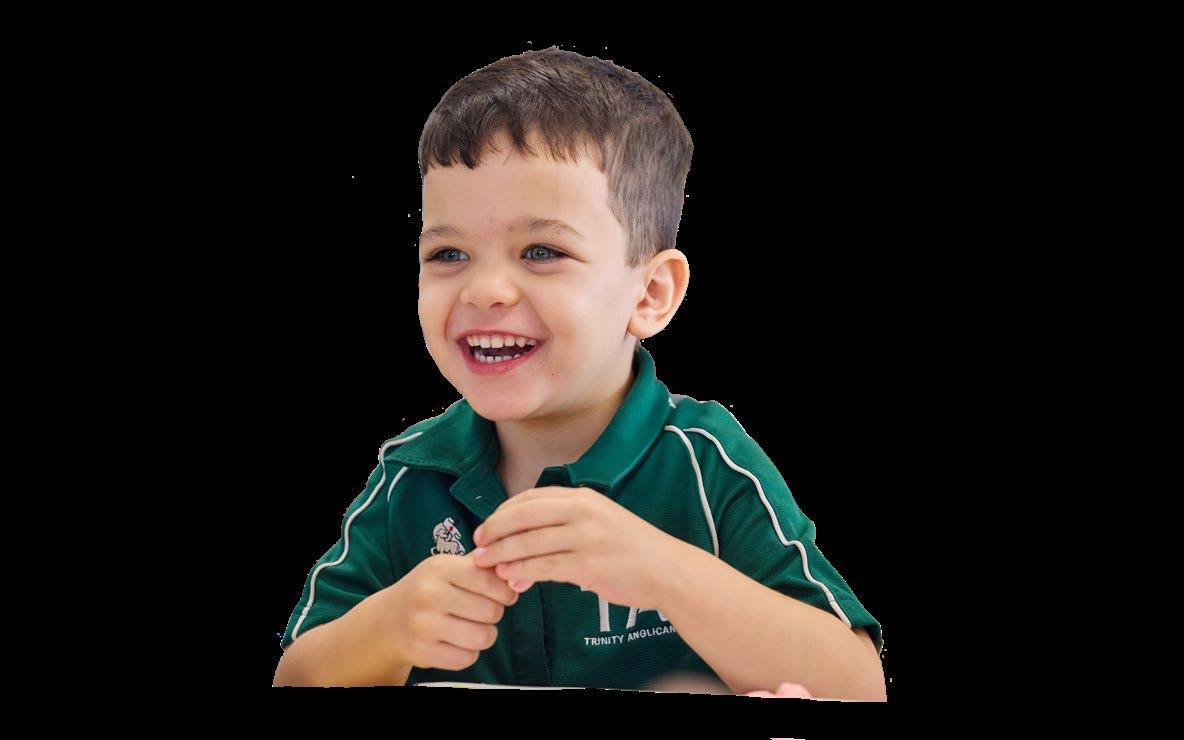




The TAS Early Learning Centres are regulated by the Australian Children’s Education and Care Quality Authority (ACECQA) and the Queensland Department of Education.
Our educators and qualified teachers are passionate professionals dedicated to creating a nurturing and engaging environment for every child.
Each educator holds a valid Working with Children Check and participates in regular child protection and safety training in line with national requirements.
We are committed to maintaining the highest standards of professionalism and care. If any concerns ever arise, they are addressed promptly and appropriately, with children’s wellbeing at the centre of our response.
Our educators plan and reflect on programs that consider each child’s learning style, abilities, interests, culture, and family context. We are committed to fostering each child’s sense of identity and respect for Aboriginal and Torres Strait Islander histories and cultures.
All educators are encouraged and supported to attend professional training and development to further their knowledge and skills. For further details on the qualifications of our educators, please see our Nominated Supervisor at each Service.
Our Staff Code of Conduct outlines the professional and ethical standards expected of all employees.
Staff adhere to Early Childhood Australia’s Code of Ethics and uphold the rights, safety, and wellbeing of every child. We respect and celebrate the diverse backgrounds and needs of our children and families.
Our Centres comply with national regulations to ensure adequate supervision and meaningful engagement for every child.
• 24–36 months: 1 educator to 5 children
36+ months: 1 educator to 11 children
Our Service operates within the Australian Government’s National Quality Framework (NQF), which includes the Education and Care Services National Law and National Quality Standard. Our curriculum aligns with the EYLF and QKLG.
We regularly self-assess against the National Quality Standard and maintain a Quality Improvement Plan (QIP) to guide continuous improvement.
The TAS Early Learning Centre offers a program deeply grounded in the In Nature Learning pedagogy, where children’s development is nurtured through immersive, hands-on experiences in natural environments. This approach encourages curiosity creativity, and resilience by allowing children to explore, discover, and learn through meaningful, guided experiences outdoors. It fosters a strong connection to the natural world and supports holistic growth across cognitive, emotional, social and physical domains.
At TAS Early Learning Centre, we believe that the early years lay the foundation for lifelong learning. Our educators design engaging environments that balance inquiry, exploration and structured learning experiences. Children are encouraged to question, investigate, and develop ideas, building skills across all areas of development including communication, critical thinking, creativity, and wellbeing.
Educators play a vital role in this process. They observe, listen, and respond to children’s interests, planning experiences that spark curiosity, extend learning, and promote growth. Learning opportunities are carefully designed to include:
• Exploration and inquiry in natural settings.
Imaginative and dramatic experiences that build language and social skills.
Constructive and creative tasks that strengthen problem-solving and fine motor development.
• Collaborative projects that nurture empathy, cooperation, and confidence.
Each child’s individuality is valued, and learning experiences are tailored to their interests and stage of development. Our environment encourages children to take appropriate risks, explore new ideas, and develop independence in a supportive setting.
We use a secure online platform to share meaningful moments from your child’s learning journey. This provides families with valuable insights into their child’s growth and development throughout the year.
Educators document learning through stories, photos, and reflections, linking each entry to relevant outcomes in the Early Years Learning Framework (EYLF) and Queensland Kindergarten Learning Guidelines (QKLG).
Families are encouraged to engage with this platform regularly, as it strengthens the connection between home and centre and supports a shared understanding of each child’s unique learning journey.
To learn more about the frameworks that guide our program, families can visit the Australian Children’s Education and Care Quality Authority (ACECQA) website for further information on the EYLF and QKLG.

Educators’ relationships with children and families have a profound influence on each child’s success in learning.
We view children as capable, active participants and decisionmakers in their own learning.
We work in partnership with families to set meaningful short- and long-term goals for each child based on the EYLF outcomes.
These goals include:
Mutual respect and empathy.
Concern and responsibility for self and others.
• A sense of self-worth.
Social awareness.
• Respect for diversity and sustainability.
Self-discipline and persistence.
Creativity and imagination.
• Confidence as independent learners.
A lifelong love of learning.
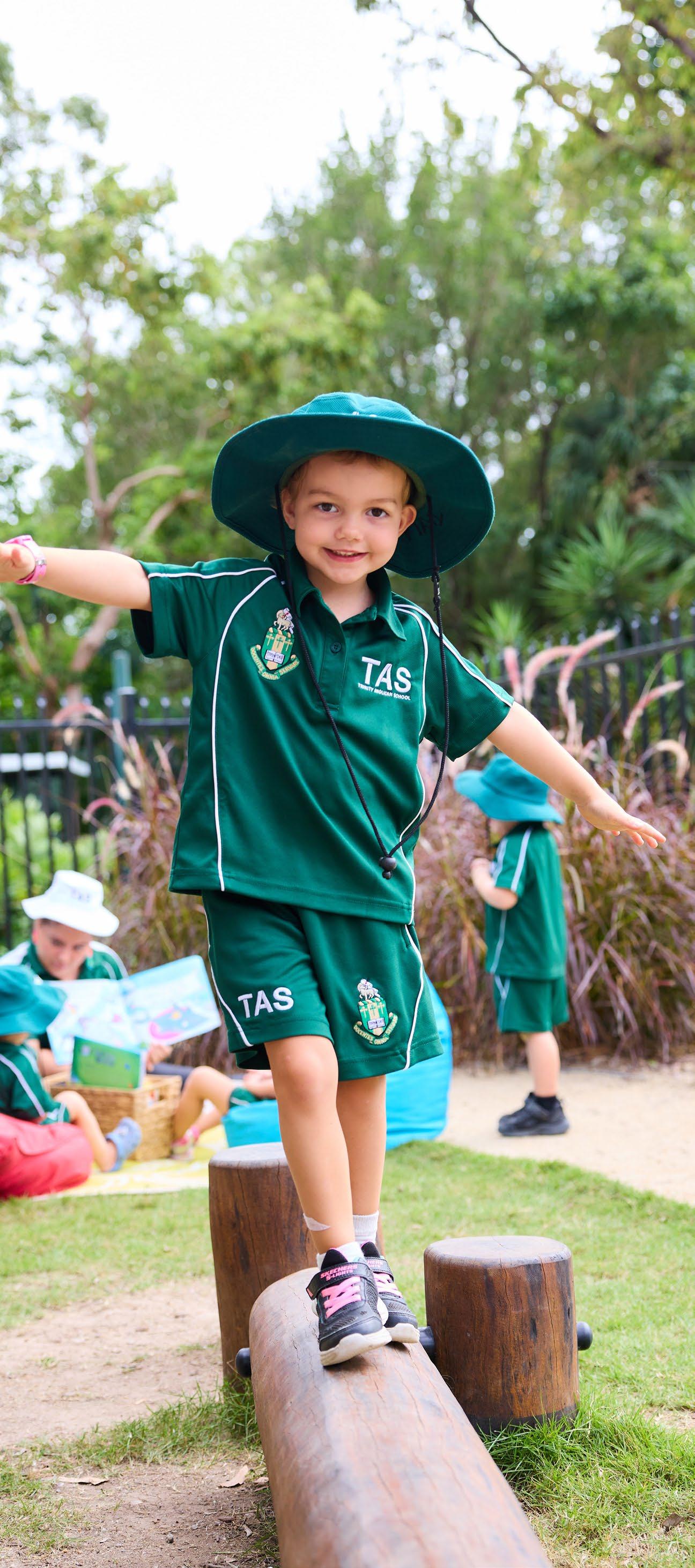

The Early Years Learning Framework (EYLF) outlines five key learning outcomes that reflect the holistic and interconnected development of children from birth to five years. These outcomes are closely aligned with the Queensland Kindergarten Learning Guidelines (QKLG) and support children’s growth across identity, wellbeing, communication, learning, and community.
Educators use these outcomes to guide planning, observation, and reflection, ensuring each child’s learning journey is meaningful, responsive, and developmentally appropriate.




1
2
3
Children have a strong sense of identity
Children feel safe, secure, and supported.
4
5

Children develop their emerging autonomy, interdependence, resilience and sense of agency.
• Children develop knowledgeable and confident self-identities and a positive sense of self-worth.
Children learn to interact with others with care, empathy and respect.
Children are connected with and contribute to their world
Children develop a sense of belonging to groups and communities and an understanding of their roles as active and informed citizens.
Children respond to diversity with respect.
• Children become aware of fairness and equity.
• Children act with care for the environment and demonstrate social responsibility.
Children have a strong sense of wellbeing
• Children become strong in their social, emotional and mental wellbeing.
• Children develop a strong sense of physical wellbeing and confidence in their movement and coordination.
Children recognise and practise ways to support their own mental and physical health, safety and wellbeing.
Children are confident and involved learners
Children develop positive learning dispositions such as curiosity, cooperation, confidence, creativity, commitment, enthusiasm, persistence, imagination and reflection.
• Children engage in a range of thinking processes such as problem-solving, inquiry, experimentation, hypothesising, researching and investigating.
Children transfer and adapt what they have learned from one context to another.
Children resource their own learning by connecting with people, places, technologies and natural and processed materials.
Children are effective communicators
Children interact verbally and non-verbally with others for a range of purposes.
• Children engage with a variety of texts and gain meaning from them.
• Children express ideas and make meaning through a range of media.
Children begin to understand how symbols and pattern systems work.
Children use digital technologies and media to access information, investigate ideas, and represent their thinking.
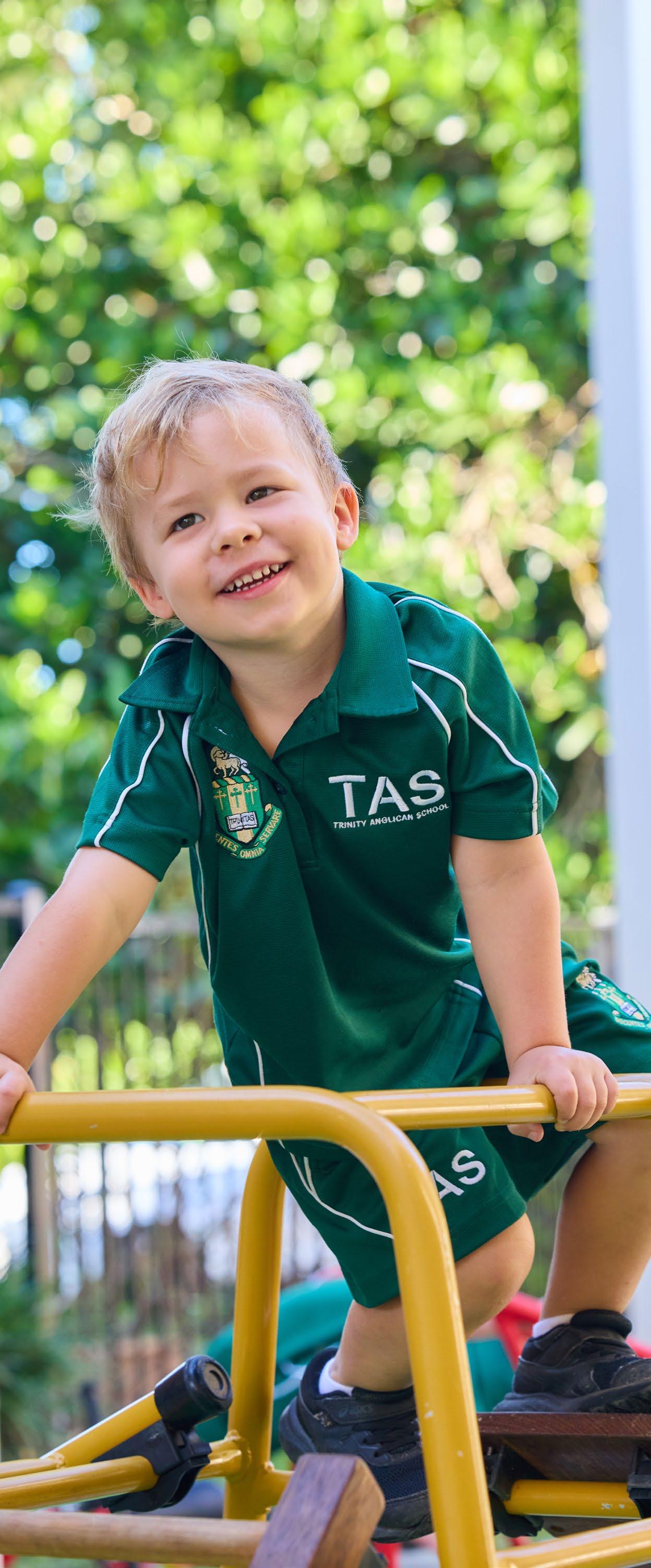
Families are encouraged to notify the Service as soon as possible if their child will be absent. Absences can be advised via the Xplor home App.
The Child Care Subsidy (CCS) covers up to 42 absence days per child, per financial year. Additional absences may be approved for specific reasons with supporting documentation. Please speak with your Nominated Supervisor for details.
Public holidays are counted as absences when they fall on your child’s usual booked day and are charged at the normal daily rate.
TAS Early Learning Centres offer discounted rates for family holidays. A 50% fee discount is available for up to four weeks per year on a pro-rata basis.
Holidays must be taken for a minimum period of one week. Please complete a Holiday Request via Xplor at least two weeks before the holiday period commences.
The TAS Early Learning Centres do not offer make-up days for absences.

Each day, parents or guardians must sign their child in on arrival and out on departure, recording the date and time. The Service uses the Xplor Check-In system for electronic attendance records, which are required under national legislation and used in case of emergencies.
Children will only be released into the care of a parent, guardian, or authorised nominee listed on the child’s enrolment record. If an alternative person needs to collect your child, written permission must be provided to the Nominated Supervisor. Identification will be required for any person not known to staff.
Early learning environments are particularly busy during morning drop-off and afternoon pick-up. For everyone’s safety, we ask that families follow these guidelines:
Always hold your child’s hand in the car park.
• Be alert for reversing vehicles.
Use the curbside, rear passenger door when helping your child in or out of the car.
• Never leave a child or infant unattended in a vehicle.
Ensure gates and doors are closed securely behind you.
• Perform a visual check around your vehicle before driving away. Keep children out of areas designated for staff or adults only.
Your cooperation helps keep all children safe at TAS Early Learning Centres.
Whilst your child is attending the Early Learning Centre, you can park in the spaces at the front of the centre on Leftwich Street and enter the campus via the Leftwich Street gate.
Please park in the main school car park and enter the Early Learning Centre through the ELC gate. For safety reasons, please do not park in the stop, drop, and go zone.
7:30 am Service Opens
Morning Outdoor Play until 9:00 am.
9:00 am Morning Tea Break
Learning sessions are play-based and align with the approved learning frameworks (EYLF and QKLG).
Activities may include bush kindy excursions, visits to the Library or Multipurpose Hall, as well as a range of indoor and outdoor experiences designed with specific learning intentions.
9:45 am Morning Learning Session
11:00 am Morning Group Session
11:20 am Lunch
12:00 pm Rest Time
1:00 pm Afternoon Learning Session
2:00 pm Afternoon Group Session
2:20 pm Afternoon Tea
3:00 pm Afternoon Outdoor Play
Activities may also involve creative arts (painting, drawing, collage and clay), literacy activities (storytelling and writing prompts), numeracy games (puzzles and counting), science and discovery (sensory play and experiments) and construction activities (blocks, Lego and playdough).
Group sessions may include a variety of experiences that support children’s social, emotional, cognitive and physical development.
These can involve learning concepts in literacy and numeracy through songs, rhymes and cultural celebrations, group discussions and research projects based on children’s interests, sharing personal experiences, music and movement, and storytelling or book reading.
5:30 pm Service Closes

7:30 am Service Opens
Morning Outdoor Play until 8:30 am.
8:30 am Morning Group Session
9:30 am Morning Tea Break
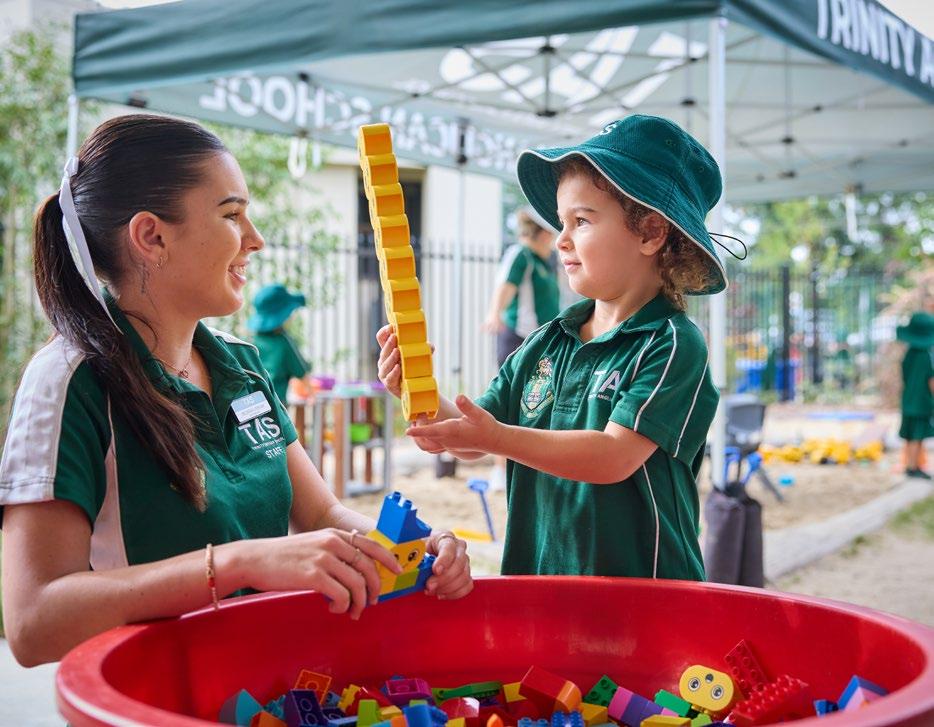
10:00 am Morning Learning Session
11:30 am Morning Group Session
12:00 pm Lunch
12:30 pm Rest Time
1:00 pm Afternoon Learning Session
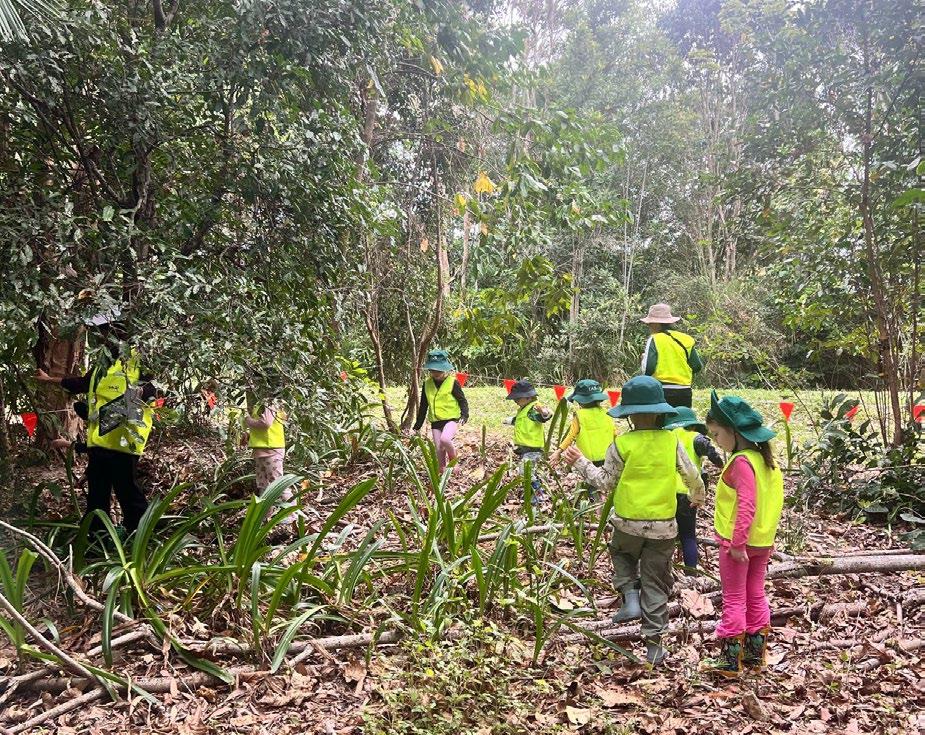
2:20 pm Afternoon Group Session
2:30 pm Afternoon Tea
3:00 pm Afternoon Outdoor Play
5:30 pm Service Closes
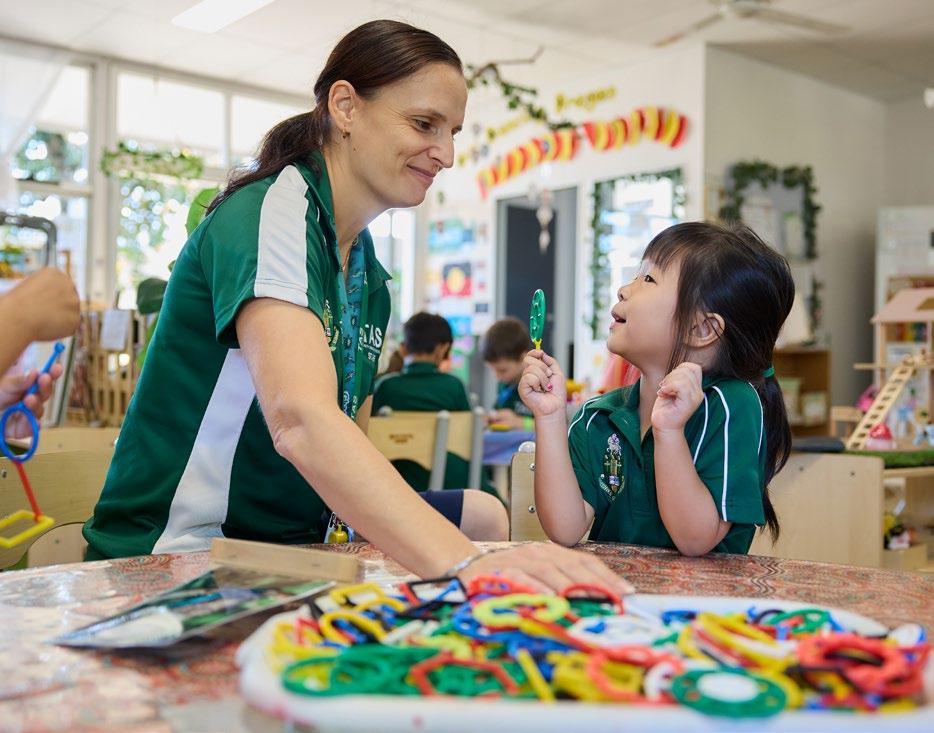
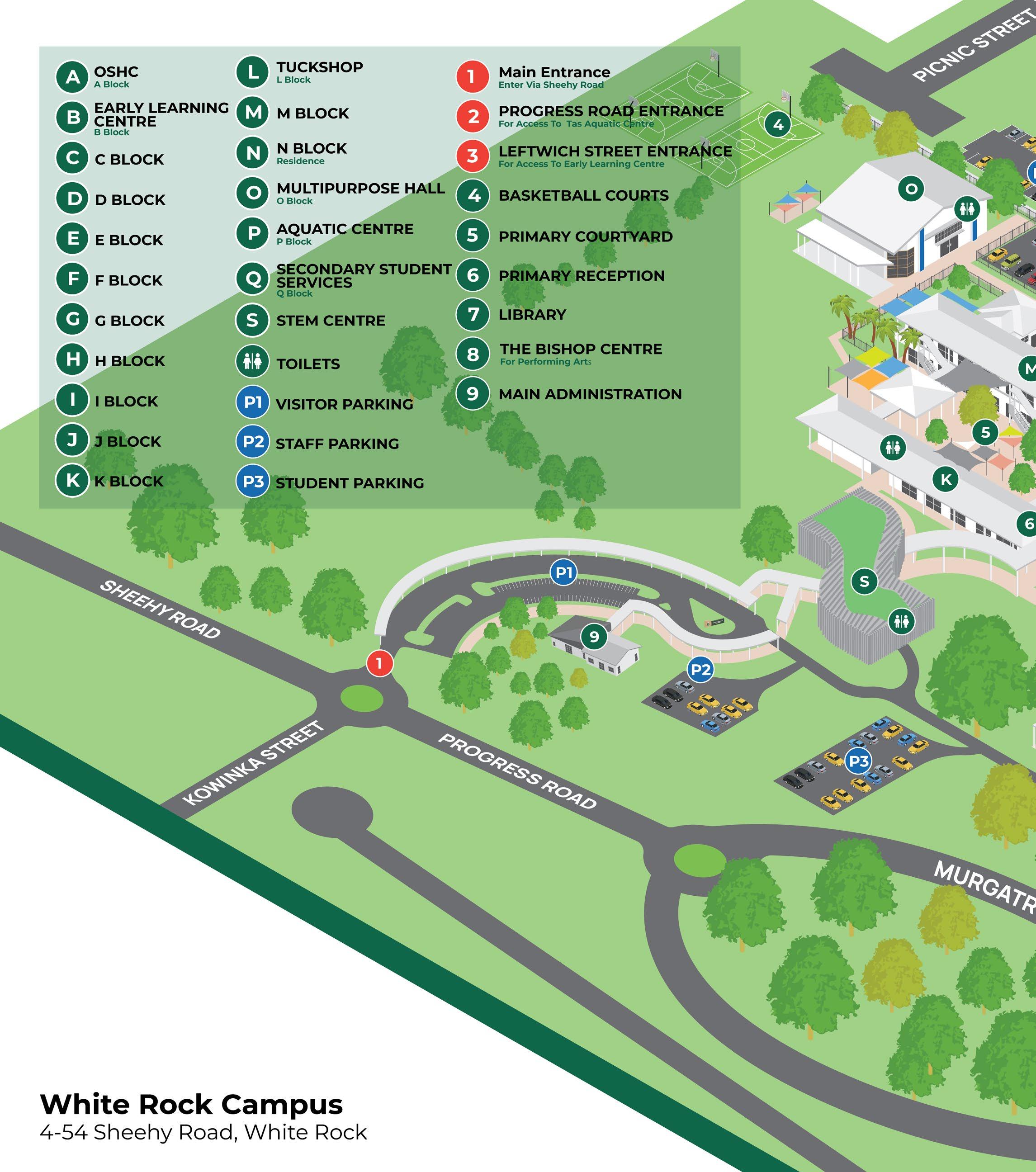

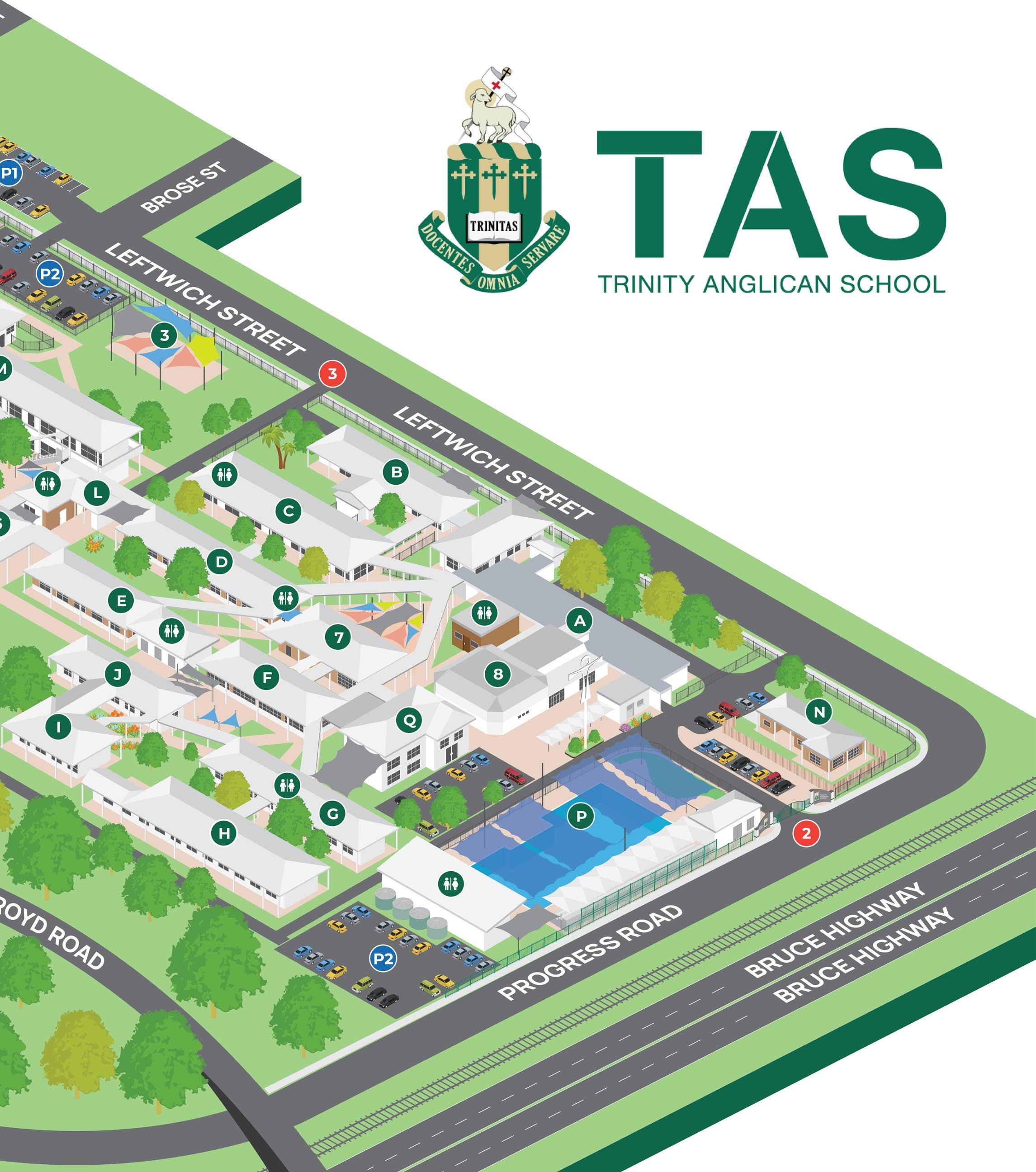
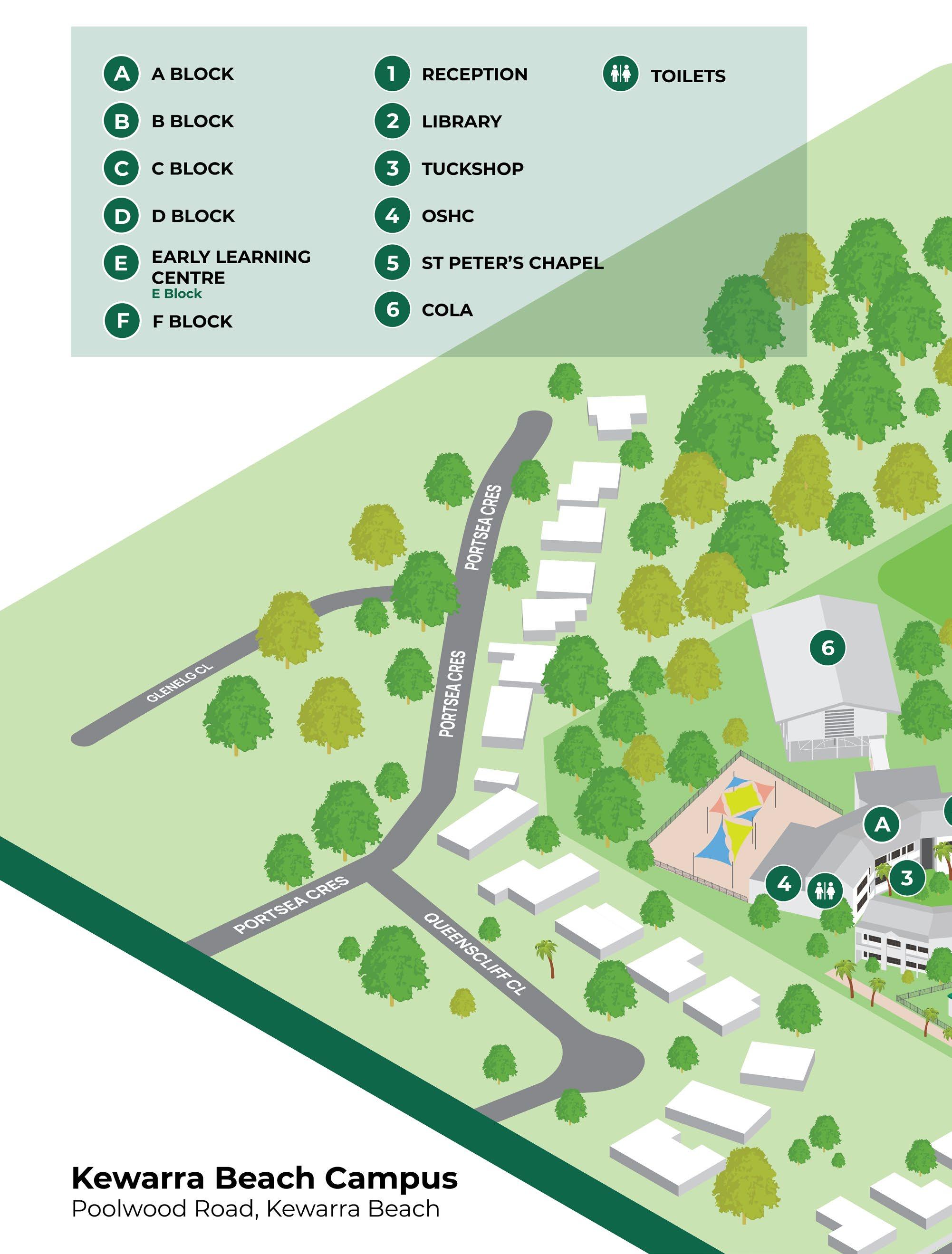
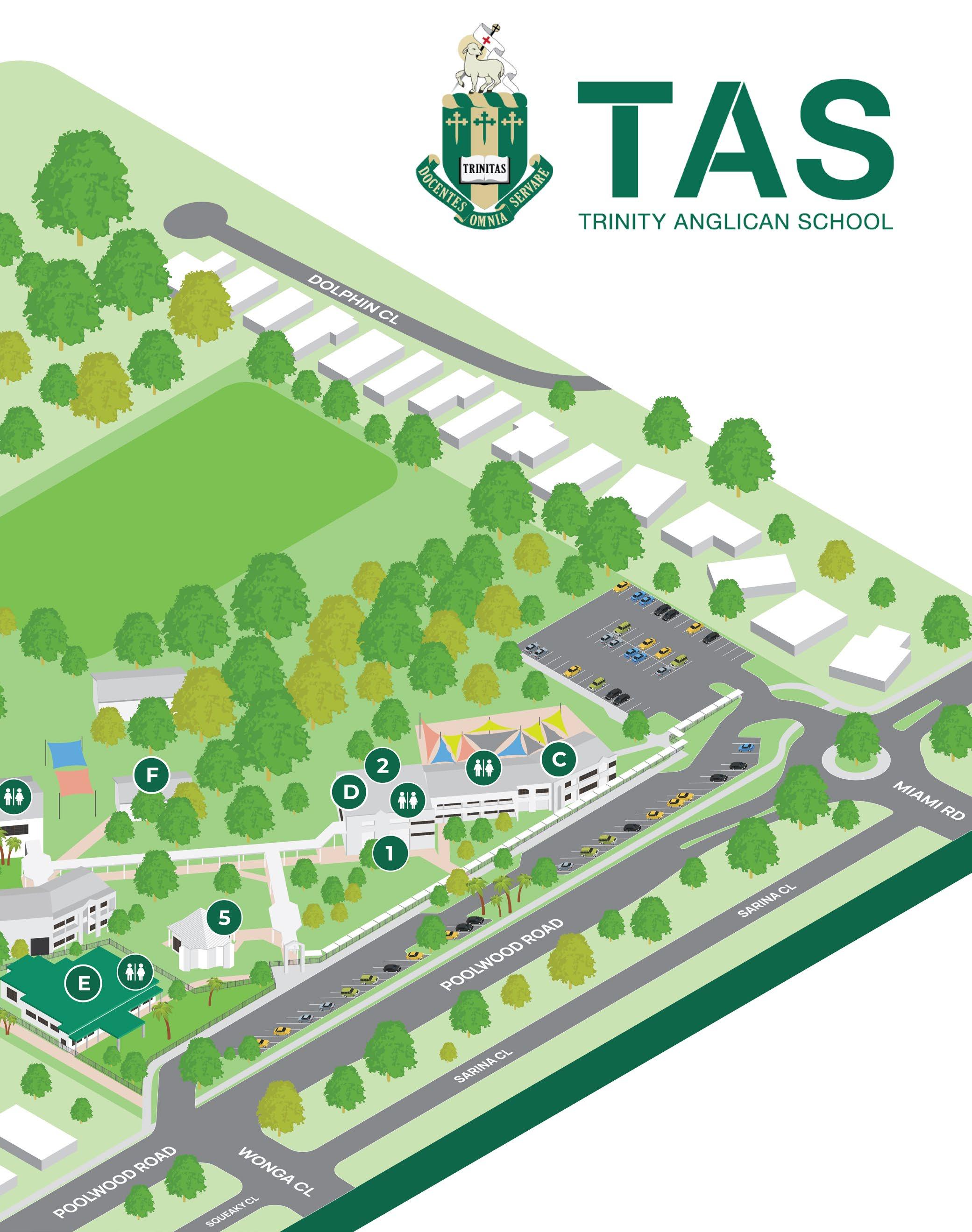

The daily fee, minus any Child Care Subsidy (CCS) and Kindergarten funding (if applicable), is direct-debited from your nominated account each week through Xplor.
Your live balance and statements can be viewed at any time through the Xplor Home App. Families are encouraged to review these regularly to ensure all details are correct. If you notice any discrepancies, please contact your Nominated Supervisor promptly.
Payments can be made from either a nominated bank account or credit card, and payment details can be managed securely within the Xplor app at any time.
If you experience any issues with your statements or direct debit setup, please contact your Nominated Supervisor for assistance.
External excursions may incur an additional cost, which will be communicated to families in advance. Participation is optional; however, if your child does not attend an excursion and care is not offered that day, the regular daily fee (gap fee) will still apply.
Parents and guardians are required to complete a direct debit setup via Xplor upon enrolment and ensure payment details remain current. Insufficient funds may result in a dishonour fee.
Accounts must have no outstanding balance by Friday of each week. Additional payments can be made by credit card directly through the Xplor Home App.


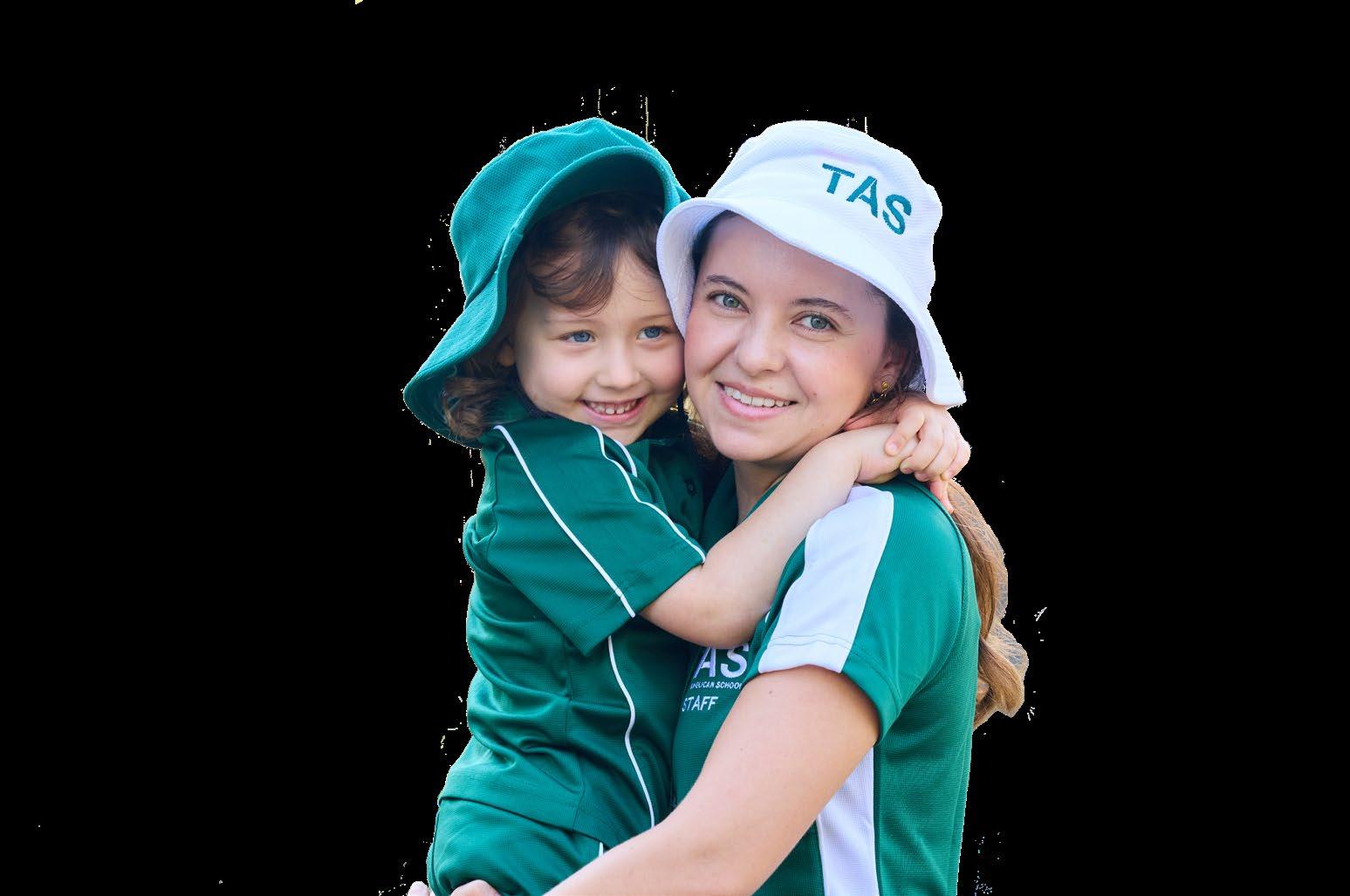


If fees are outstanding for more than two weeks, a $25 late payment fee will apply.
Families experiencing financial hardship are encouraged to speak with the Nominated Supervisor or Director as soon as possible. In some cases, an Additional Child Care Subsidy (ACCS) or a payment plan may be available to support your family.
Two weeks’ written notice is required to withdraw a child’s enrolment. Fees are payable up to and including the end of the notification period. Within the two-week notice period, children are not eligible to receive Child Care Subsidy (CCS) for any booked days where they do not physically attend, unless a valid reason applies.
The Service operates from 7.30 am to 5.30 pm, Monday to Friday.
Under National Regulations, children cannot be in care before 7.30 am or after 5.30 pm. A late fee of $20 per child for every 10 minutes or part thereof applies for collections after 5.30 pm. This fee will be added to your next account.
Two educators are required to remain on site until all children are collected. If a parent or authorised nominee cannot be reached within one hour of closing, the Service may contact Police or other relevant authorities to ensure the child’s safety.
The current fee schedules are available on the on the school website: https://tas.qld.edu.au/kindergarten/
The Child Care Subsidy (CCS) helps families with the cost of childcare for children aged 0 to 13 years. The level of subsidy is determined by:
• Combined annual family income.
The activity level of both parents (Activity Test).
• The type of service and whether the child attends school.
The number of children in your care.
Families must apply for CCS through the myGov website, including completion of the CCS Activity Test. The subsidy is paid directly to the Service and passed on to families as a reduction in fees. Families then pay the remaining “gap fee.”
On enrolment, parents must provide the Customer Reference Number (CRN) for both the parent/guardian linked with the child and for the child themselves. This allows the Service to confirm attendance and apply the appropriate subsidy.
Before CCS payments can begin, families must approve the enrolment information within the Complying Written Agreement (CWA) via their myGov account. If a child has not attended the Service for fourteen continuous weeks, the CCS will cease, and full fees will apply until attendance resumes.
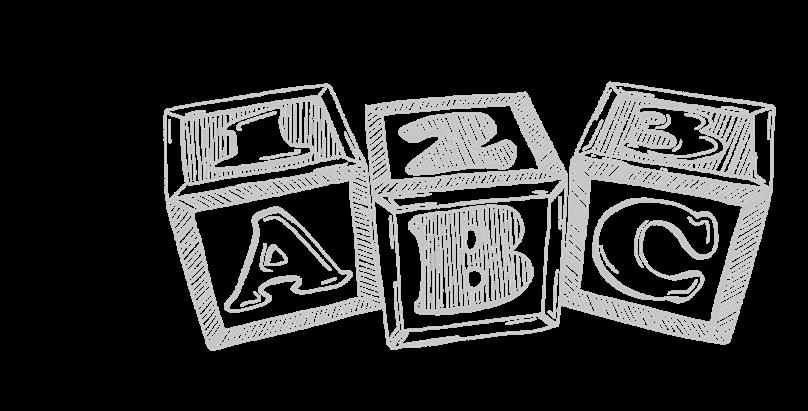
A Complying Written Agreement (CWA) is a formal agreement between the Service and the parent or guardian outlining the care arrangement and fees. It includes your child’s name, date of birth, start date, booking details, and the fee structure.
From 2024, the Queensland Government provides 15 hours per week of free Kindy funding for eligible children attending a government-approved kindergarten program.
This funding helps make early learning more accessible for families and supports children in the year before they start Prep. The subsidy is applied directly to your child’s fees, reducing the amount you pay each week.
Families do not need to apply separately for this funding. Eligibility and funding allocation are managed by the Service as part of your enrolment.
For more information, please visit the Queensland Government’s Free Kindy page or speak with your Nominated Supervisor.
Children are required to wear the applicable TAS uniform each day, including a TAS hat, white cotton socks and black enclosed shoes that they can take off and put on independently (for example, with Velcro fastenings). TAS Early Learning Centre students are also required to have a TAS school bag.
Our youngest students, from Pre-Kindy to Year 2, wear the same comfortable and practical uniform that older students use for sport. From Year 3 onwards, students also wear a formal everyday uniform on non-sport
TAS Sport Shirt
TAS Sport Shorts
Features an elastic waist with a drawstring

days, reflecting their growth and progression through the school.
The school uniform policy requires that: All children wear their TAS hat and enclosed shoes to and from school.
• Long hair is tied back. If using ribbons or scrunchies, they should be in school colours.
• Jewellery is not permitted. Stud earrings are acceptable.
Uniform items can be purchased through the TAS Uniform Shop.

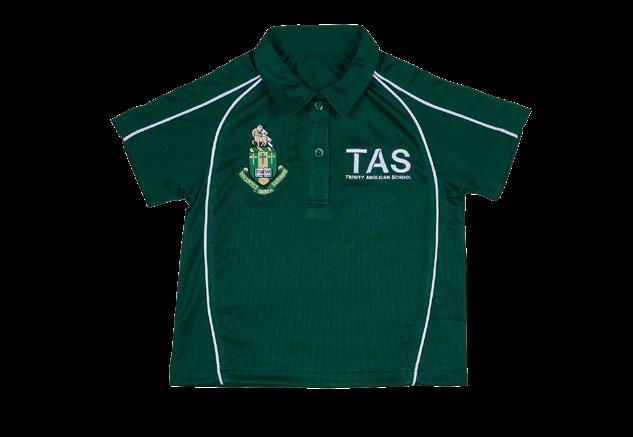

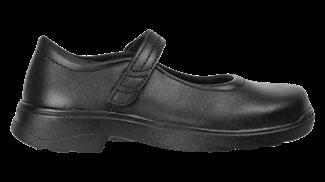
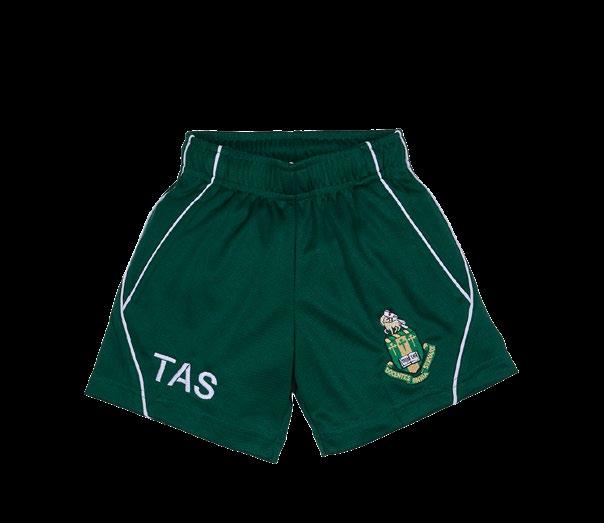

The official Uniform Guide & price list can be found on the school website: www.tas.qld.edu.au/uniforms/
Bush Kindy is a nature-based learning program offered at each TAS Early Learning Centre, providing children with opportunities to explore the outdoors, build resilience, and develop a deeper connection with the natural environment.
Sessions are thoughtfully planned with safety as a priority and are supported by comprehensive risk assessments. For further information, please contact your Service’s Nominated Supervisor.
At Bush Kindy, we nurture curious learners through hands-on, inquiry-based exploration that supports children’s social, cognitive, physical, and emotional development. We believe children learn best through real-life experiences. Engaging directly with the natural world helps them build confidence, make healthy choices, and approach new challenges with enthusiasm.
Children are encouraged to take responsibility for their own safety and decision-making during play. By thinking about their own wellbeing and that of others, they become active participants in their learning journey. Our program fosters a deep connection with nature and a lifelong respect for the environment. Regular time spent outdoors helps children develop a sense of wonder, stimulates imagination, enhances social interactions, and supports overall wellbeing.
We value each child’s unique strengths and interests, creating an environment where they feel confident to share ideas, take risks, and learn from experience. We also promote appreciation of others’ differences, helping children build empathy and a strong sense of community.
Bush Kindy provides children with meaningful experiences in nature that promote:
• Physical health and gross motor development
Emotional wellbeing and resilience
• Creativity, imagination, and problem-solving Independence and confidence
Social skills, teamwork, and communication
• Regular contact with the natural world helps children develop a sense of belonging and a lifelong respect for the environment.
To ensure your child is comfortable and prepared, please pack:
FOOTWEAR: Fully enclosed shoes with flexible soles (old joggers are ideal). On wet days, gumboots are great for puddle play, but joggers are still required for activities such as tree climbing.

CLOTHING: Long pants are preferred to protect from scratches, insect bites, and sun exposure. Clothing should be loose-fitting, comfortable, and suitable for active outdoor play. In warmer weather, shorts may be worn with long-sleeved tops made from breathable fabric. Dark-coloured clothing is recommended, as it provides better sun protection and helps conceal dirt and marks from outdoor activities.
SPARE CLOTHING: A full spare set of clothes in a reusable wet bag (pants or shorts, t-shirt, underwear, and socks).
WET WEATHER GEAR: A waterproof jacket for rainy days.
HAT: Your child’s TAS hat must be worn during all Bush Kindy sessions.
WATER BOTTLE: Please ensure your child brings a filled water bottle.
FRUIT FOR MORNING TEA: Each child is asked to bring a piece of fruit to share with the group.
WOUND CARE: Any scratches or small wounds must be covered with waterproof dressings. Children with anything more than a minor scratch will not be able to participate for safety reasons.
Please note that children may get messy during play and exploration. We recommend dressing your child in inexpensive, dark-coloured clothing that can be easily washed.
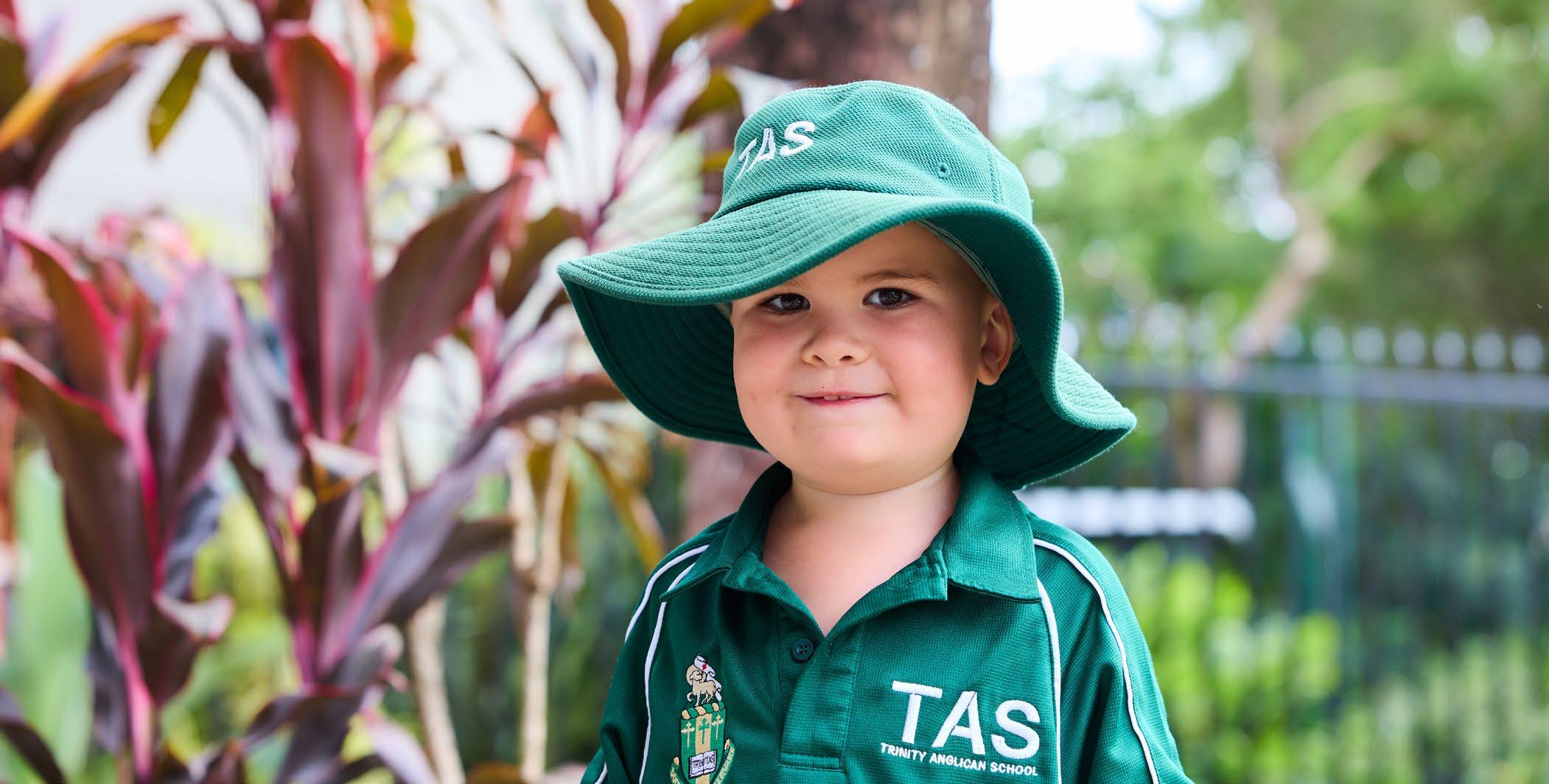
Bush Kindy sessions include additional sun safety measures in line with TAS policy:
• All sites provide adequate natural shade for safe outdoor learning. Educators ensure activities occur in shaded areas, especially during peak UV periods.
• A small handheld mirror is available to help children reapply sunscreen independently every two hours, promoting sun safety and self-care.
• Travel routes to and from Bush Kindy are planned to maximise shade wherever possible.
Our ELC Services maintain safe and hygienic toileting practices to support children’s health, dignity, and independence during Bush Kindy sessions:
Children have access to a portable toilet set up within a private, screened area.
• Hand hygiene is supported through the use of sanitiser.
• Each child must bring a wet bag and full spare set of clothing in their backpack. Toilets and equipment are cleaned and disinfected after each session.
• Educators supervise toileting discreetly, respecting privacy and encouraging independence.
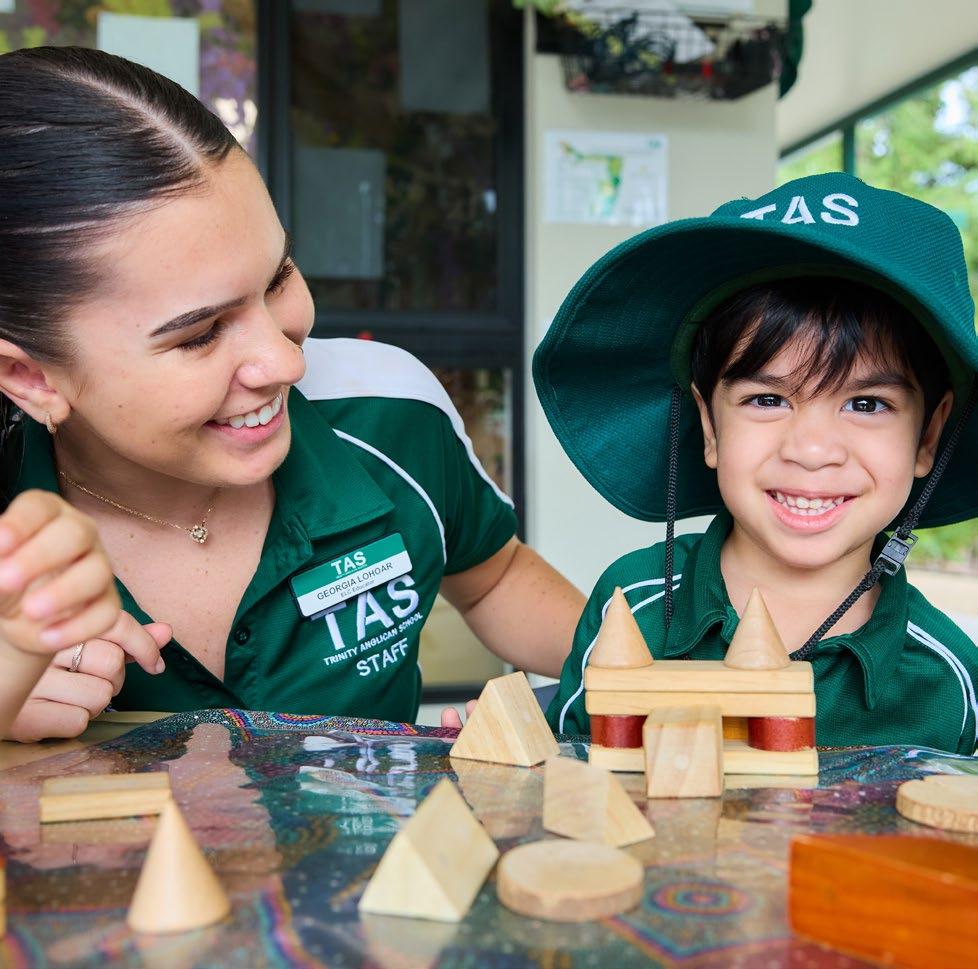


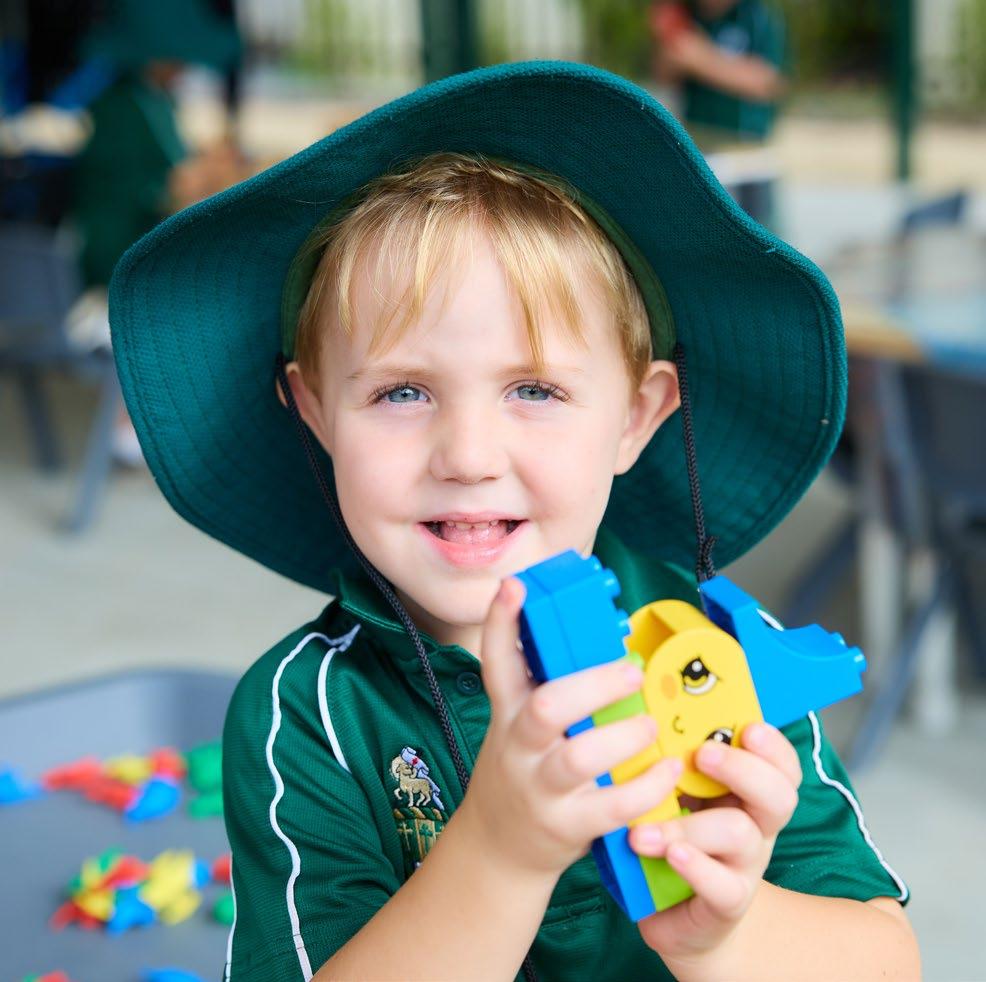

To ensure safe and inclusive mealtime practices during Bush Kindy sessions:
Children sanitise their hands before eating using wipes or sanitiser.
• Mealtimes take place in calm, shaded areas under active supervision.
Families may occasionally be asked to pack non-refrigerated snacks and lunches if sessions run for extended periods.
Each family contributes a piece of fruit to a shared fruit platter, encouraging healthy eating and a sense of community.
• Food waste and rubbish are collected and removed from the site to maintain environmental cleanliness.


If your child has a diagnosed medical condition, their prescribed medication and Medical Management Plan will be taken to all Bush Kindy sessions.
Educators are trained to follow TAS’s Managing Medical Conditions Policy, ensuring your child’s safety, inclusion, and wellbeing during outdoor learning experiences.
For further details, please refer to the Nature Play and Outdoor Learning Policy.



Our Service implements a combination of sun protection measures to ensure the health and safety of every child.
We monitor UV index levels daily, as well as the temperature of outdoor play equipment, and schedule outdoor activities when conditions are safe. Our outdoor environments provide natural and built shade, and regular risk assessments are conducted to ensure the play space remains safe and comfortable for children.
Children and educators are required to wear hats, sun-safe clothing, and appropriate footwear when outdoors. Educators model and encourage positive sun safety habits, such as applying sunscreen and seeking shade when necessary.
We use broad-spectrum SPF 50+ sunscreen, which is reapplied throughout the day according to the manufacturer’s instructions. We ask that children arrive at the Service with sunscreen already applied so they can participate in outdoor play immediately. Consent to apply sunscreen is included in the enrolment process.
Families who prefer to supply their own sunscreen can speak with their Nominated Supervisor to complete an Alternative Sunscreen-Insect Repellent Authorisation Form. All personal sunscreen must be clearly labelled with the child’s full name and expiry date.
Our Service maintains high standards of hygiene to promote the health and wellbeing of all children, families, and staff.
We have clear risk management procedures in place to identify and minimise potential hazards in the learning environment. Educators model and teach good hygiene habits such as thorough handwashing, covering coughs and sneezes, and proper tissue disposal.
All children and visitors are asked to wash their hands or use the alcohol-based hand sanitiser provided upon arrival.
High-touch surfaces, toys, and shared materials are cleaned and disinfected regularly throughout the day to reduce the spread of germs and maintain a safe, healthy environment for everyone.

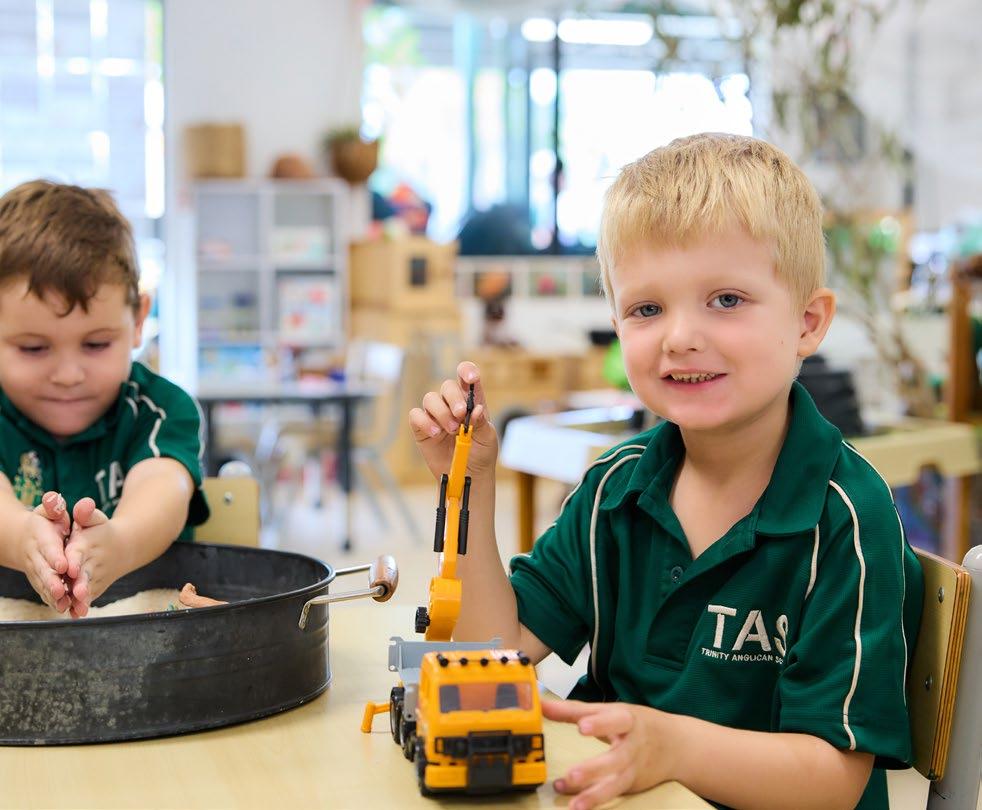
Attending the Service is a busy and stimulating day for children. When they are unwell, they need rest and care in the comfort of their own home. Our Service is not equipped to care for sick children; however, our educators will always provide comfort and support if a child becomes unwell while in our care. To help prevent the spread of illness, we follow the National Health and Medical Research Council’s (NHMRC) Staying Healthy in Childcare guidelines.

Please keep your child at home if they are unwell or have any symptoms of an infectious illness. If your child becomes unwell while at the Service, we will contact you or your authorised nominee to collect them. You will receive an Injury, Incident, Trauma and Illness Record outlining their symptoms, any action taken, and care provided, which you will be asked to sign.
For the health and safety of all children:
• Children must not attend the Service if they have had paracetamol within the past 24 hours.
Children starting a course of antibiotics must remain at home for the first 24 hours.
• Children who have vomited or had diarrhoea must be excluded for 48 hours from the last episode.
A medical clearance certificate may be required for certain illnesses before returning. These guidelines ensure a safe, healthy environment for all children, families, and staff.
To support a safe and healthy environment, families must provide an up-to-date Immunisation History Statement from the Australian Immunisation Register (AIR) when enrolling. This statement can be downloaded via your Medicare account on myGov.
Under the Public Health Act 2005, early childhood services may refuse enrolment or attendance if a child is not up to date with scheduled vaccinations. Children must meet immunisation requirements to be eligible for the Child Care Subsidy (CCS).
The only unimmunised children who may attend are those on an approved catch-up schedule or with a certified medical exemption recorded on their AIR statement.
Please supply updated AIR statements whenever your child receives new vaccinations. During a vaccine-preventable disease outbreak, unimmunised children may be temporarily excluded in line with public health advice.
Our Service follows the Queensland Health and National Health and Medical Research Council (NHMRC) guidelines for the management of infectious diseases in early childhood settings. If an infectious illness is identified within the Service, families will be notified promptly and provided with relevant information about symptoms, exclusion periods, and any additional precautions required.
Exclusion times are based on the Staying Healthy in Childcare (6th Edition) guidelines and are designed to protect all children, families, and educators from preventable illness.
For recommended exclusion periods, scan the QR code or visit www.health.qld.gov. au/public-health/ schools/prevention.
At TAS Early Learning Centres, we aim to minimise the risk of accidents and injuries wherever possible. However, as children explore, play, and learn, minor incidents can sometimes occur. All educators hold current First Aid, CPR, Asthma, and Anaphylaxis Management qualifications and respond quickly and calmly to any situation requiring care.
If your child is involved in an incident, injury, or illness at the Service, an Incident, Injury, Trauma, and Illness Record will be completed by an educator. You will be asked to review and sign this record to acknowledge the details and care provided.
In the event of a serious injury or medical emergency, the Nominated Supervisor will contact you immediately. If we cannot reach a parent or guardian, we will attempt to contact your authorised nominee. If neither can be reached, emergency services will be called, and an educator will accompany your child to the hospital if necessary.
Ambulance cover (if applicable) is the responsibility of each family. The Regulatory Authority will be notified of any serious incident in accordance with National Regulations.
Rest and sleep routines vary for each child, and we aim to make this part of the day calm, comfortable, and nurturing. Our rest environments are designed to support relaxation, with soft music, low lighting, and quiet surroundings. Each child is provided with a bed, and educators help children settle according to their individual needs.
Children are welcome to bring a small comfort item from home, such as a soft toy or blanket, to support their sense of security. Families are encouraged to discuss their child’s rest preferences and needs with educators to ensure consistency between home and the Service. Daily information about your child’s rest or sleep times is shared with families via the Xplor app, and for those children who do not sleep, quiet activities such as reading or puzzles are offered

Nutrition plays an important role in children’s learning and wellbeing. It is expected that your child’s lunchbox supports them to consume approximately 50% of their Recommended Daily Intake (RDI) while at the Service.
Please provide morning tea, lunch, and afternoon tea, following the healthy lunchbox recommendations pictured below.
We encourage families to follow the Nutrition Australia guidelines for balanced meals, including fresh fruit, vegetables, whole grains, and proteinrich foods. Please avoid packing “sometimes foods” such as chips, lollies, chocolate, highly processed snacks, chocolate custards or desserts, pastries, flavoured milk, roll-ups, or other highsugar items. These items will remain in your child’s lunchbox for home time.
Creating a healthy environment is a shared responsibility between families and educators, and we appreciate your support in promoting nutritious choices that sustain your child’s energy and focus throughout the day.
For more information, please refer to Nutrition Australia’s Recommended Daily Intakes.
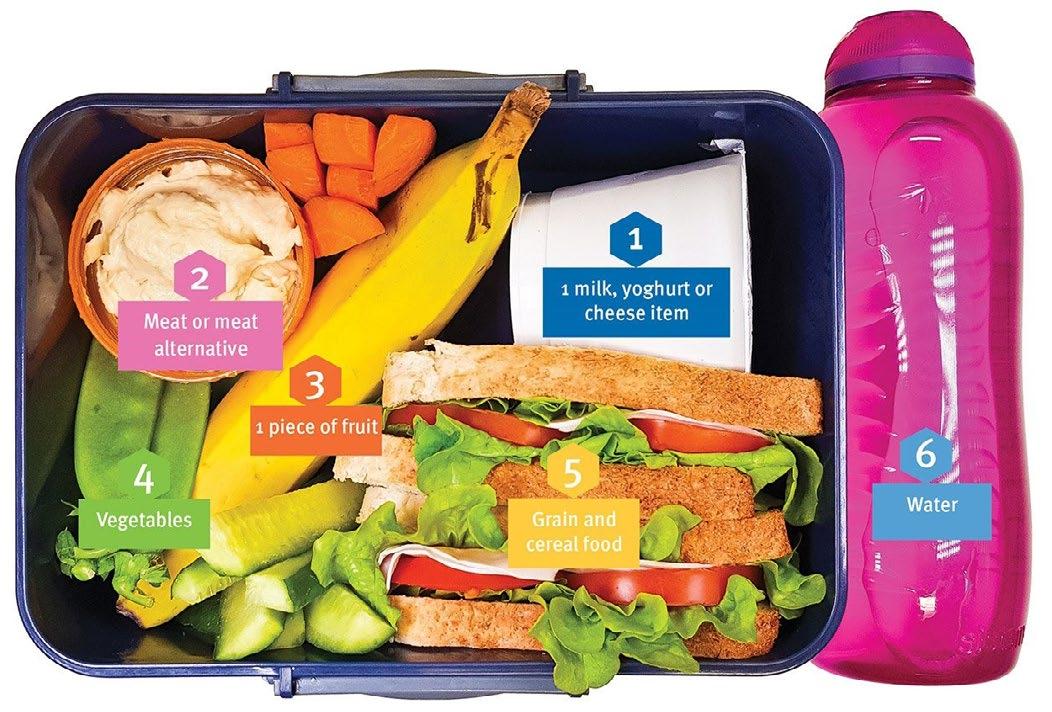
The health and safety of every child in our care is our highest priority. To ensure we can provide the best possible care, families are required to inform the centre of any allergies, medical conditions, or dietary restrictions upon enrolment and whenever changes occur.
Prior to commencement, a completed TAS Medical Management Plan signed by your child’s doctor for any diagnosed condition (e.g., asthma, anaphylaxis, diabetes).
Any prescribed medication in its original packaging with the child’s name, dosage, and expiry date clearly visible.
• Up-to-date emergency contact details.
We are dedicated to ensuring the health and safety of every child in our care. Our team strictly follows all medical management plans and maintains up-to-date training in first aid and emergency response. We are a nut free service and implement allergy-aware practices throughout the service, including safe food handling and strategies to minimise exposure to allergens.
Important:
If your child develops a new allergy or medical condition, please notify us immediately so we can update their records and care plan.
Our Service provides a wide range of developmentally appropriate resources and equipment for children to enjoy throughout the day.
To support positive social interactions and minimise the risk of items being lost or damaged, we ask that children do not bring toys from home. This helps avoid disappointment and ensures educators can focus on supporting play and learning experiences rather than managing personal belongings. We also ask that Show and Tell items are not toys, but rather something with family or cultural significance, or an object that reflects a child’s interests or experiences.
Thank you for your understanding and support in helping us create a safe, inclusive, and engaging learning environment for all children.
We love celebrating birthdays and making each child feel special on their big day. To ensure the health and safety of all children, we have a no cake policy. Instead, parents are welcome to provide a sealed packet of icy poles to share with the group. This allows for a fun, inclusive treat that all children can enjoy safely.
Please speak with your child’s educator in advance to coordinate the celebration and ensure we can accommodate any dietary requirements or allergies within the group.
Toileting and nappy changing are carried out at regular intervals throughout the day to ensure each child’s comfort, hygiene, and wellbeing.
Children who are in nappies have each change recorded in the Xplor app. Educators support children through positive, respectful routines that encourage independence and dignity.
For children who are toilet training, educators work closely with families to maintain consistent routines between home and the Service. Families are encouraged to communicate their child’s progress and preferred approaches so that we can provide continuity and support.
Families are required to provide pull-ups for children who are not yet fully toilet trained. Educators will monitor and record progress throughout the day and share updates with families as needed.





At TAS Early Learning Centres, we promote positive behaviour through respect, understanding, and empathy.
Our educators guide children to develop selfregulation, confidence, and an awareness of how their actions affect others.
We encourage children to engage in cooperative and pro-social behaviour and provide opportunities for them to practice decision-making and problem-solving during play.
Our approach focuses on recognising positive behaviours, supporting children to express their feelings appropriately, and helping them to learn respectful ways of interacting with others.
Educators model calm, consistent communication and work in partnership with families to ensure a shared approach to behaviour guidance.
To ensure the safety and wellbeing of every child, our Service must comply with all legal obligations relating to court or parenting orders.
If any court orders, parenting plans, or custody arrangements are in place, families are required to provide the Service with a current, certified copy of the relevant documentation.
This allows educators to act in accordance with the orders and support each child’s care and security.
Our educators and staff must follow the directions outlined in these documents. They cannot deny a parent access to their child unless a valid court order restricting access is on file. If court orders are updated or changed, families must provide an updated copy to the Nominated Supervisor as soon as possible. All information provided is treated with the highest level of confidentiality and stored securely in accordance with privacy regulations.
Please scan the QR code for a copy of the TAS Guiding Children’s Behaviour Policy and Procedure.
The safety of children, families, and staff is our highest priority. Our Service conducts regular risk assessments and maintains detailed emergency management plans for a range of potential situations.
Throughout the year, we carry out emergency and evacuation drills to ensure children and educators are confident and prepared. These may occur at any time during the day and simulate different types of emergencies, such as fire, lockdown, or flood.
Under the National Regulations, drills are conducted at least every three months. Educators guide children through these procedures in a calm and supportive manner, helping them understand what to do while ensuring the experience remains positive and reassuring.
All educators are trained in emergency response procedures and the use of fire safety equipment located within the Service. Evacuation and lockdown plans are displayed in every room, and exit points are clearly marked.
Our Service follows the National Model Code and Guidelines for taking and using images or videos of children. Only Service-approved devices are used to capture photos or videos, and all digital content is stored securely in accordance with privacy and data protection requirements.
We ask families to support these guidelines by not taking photos or videos of children while on the Service premises, including during events, drop-off and pick-up times. This ensures the privacy and safety of all children and families in our care.
Our educators are also required to maintain confidentiality and are not permitted to share personal information of children, families, or staff members. Educators are encouraged to maintain professional boundaries and not connect with families through personal social media accounts.
Thank you for helping us uphold a safe, respectful, and professional environment for all members of our community.


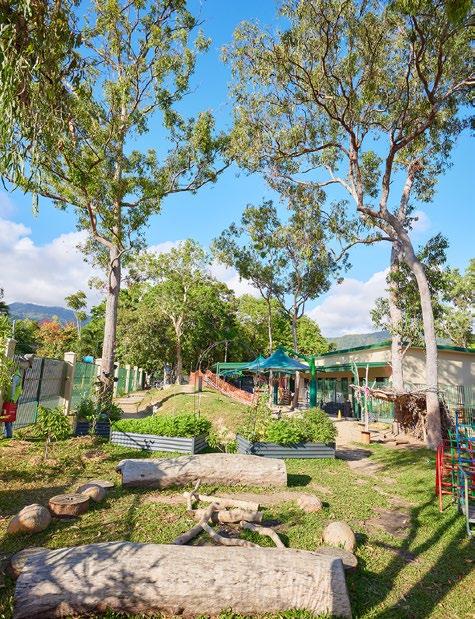
Our Service has an open-door policy and warmly encourages families to participate in centre life. Family involvement strengthens the connection between home and school, enriches the learning environment, and helps children feel a strong sense of belonging.
There are many ways to be involved, such as sharing feedback, contributing ideas to your child’s program, or volunteering to share your skills and experiences.
1 2 3 4 5 6

Family Walls: Bring in a family photo to display on our wall. Seeing familiar faces helps children feel connected and proud to share their family with their peers.
Share Your Story: We welcome families to share aspects of their culture, history, language, and celebrations to help us create a rich and inclusive learning environment.
Reading Together: If you have time to read to the children, please speak with your room educators to arrange a visit.
Recyclable Materials: We are always seeking materials such as ribbons, paper rolls, empty food containers, or other interesting items for creative projects.
Special Events: Throughout the year, we host special events and celebrations and invite families to participate.
Feedback and Ideas: Families are encouraged to share suggestions or feedback at any time to help us continue improving our programs and practices.
Please also check the Service noticeboard and Xplor App regularly for updates, reminders, and announcements.
At TAS, we believe strong communication between families and educators is essential to your child’s success. Our educators work in partnership with families to ensure every child’s culture, interests, and abilities are reflected in their learning program.
If educators have any concerns about your child’s development, they will share observations and, where appropriate, suggest follow-up with relevant specialists such as speech or occupational therapists. These discussions are handled sensitively, and families always make the final decision about any next steps.
Educators observe and document each child’s learning and progress throughout the year. This information is compiled into an individual digital portfolio, which includes:
Observations and learning stories
• Goals from families and educators
Captioned photos and work samples
• Reflections, checklists, and transition statements
These portfolios are maintained through the Xplor app, which allows families to view their child’s progress and contribute comments, goals, or feedback.

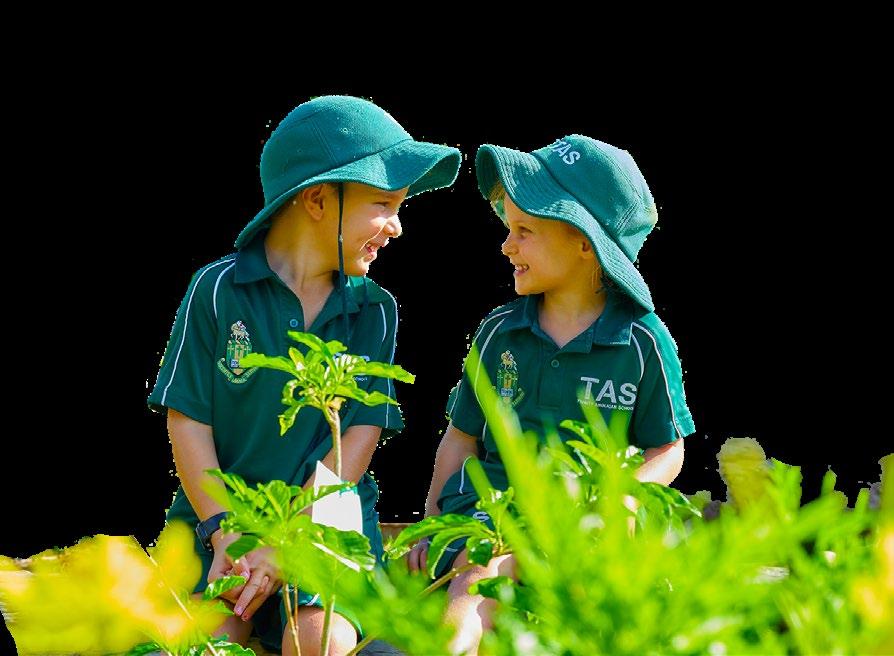
We offer a variety of ways for families to stay connected and informed:
• Parent-Teacher Interviews: Families are invited to participate in informal interviews to discuss learning goals and progress. Teachers may also liaise with external specialists when additional support is needed.
• Xplor App: Educators share photos, observations, and updates through the Xplor app, allowing families to see what their child is learning and experiencing each week.
• Email Communication: Families are welcome to contact the Service via email for updates or to share information about their child.
• Telephone Communication: If you prefer to speak by phone, please contact the Service before or after session times to ensure educators can provide their full attention.

To help families connect, a Facebook Messenger Community is created each year for every Pre-Kindy group. This group then follows the cohort through to Year 12, supporting lasting friendships and a strong sense of community among families.

Kewarra Beach Kindy 2026

White Rock Kindy 2026

Kewarra Beach Pre-Kindy 2026

White Rock Pre-Kindy 2026
These communities are established by the school; however, they are not official school communication channels. They provide a friendly space for parents to share reminders, plan playdates, and support one another throughout their TAS journey.
Parents will be invited to join their applicable group when their child commences at the TAS Early Learning Centre. Please note that families must not create their own social media groups using the TAS name, branding, or images. This helps maintain consistency, protect privacy, and uphold the integrity of the school’s brand.
We kindly ask that all communication within these groups remains respectful, inclusive, and positive, ensuring they continue to reflect the supportive and collaborative spirit of our TAS community.
All families are encouraged to familiarise themselves with our Service Policies and Procedures, which outline key practices, safety guidelines, and compliance with National Law and Regulations.
You can access our full policy library by scanning the QR code located in the foyer of each Centre. Policies are reviewed regularly to ensure they reflect current best practice, and family input is always welcome.
Your feedback helps us continuously improve and adapt our Service to meet the needs of our community.
At TAS Early Learning Centre, we recognise that parenting and early learning are shared journeys that thrive on connection and support. Alongside our dedicated educators, there are many local and national organisations that provide guidance, information, and assistance to families.
The following contacts and community resources are provided to help you access trusted support networks for parenting, child health, wellbeing, and community engagement whenever you need them.
Asthma Australia: 1800 278 462 (1800 ASTHMA)
Autism Queensland (Cairns): (07) 4034 6600 or cairnsdisability.net.au
Be You: beyou.edu.au
Beyond Blue: 1300 224 636
Cancer Council Australia Helpline: 13 11 20
Centacare FNQ: (07) 4044 0130 or centacarefnq.org
Child Support (Services Australia): 131 272
Community Health Centre (Cairns): (07) 4050 3500
Dads in Distress: 1300 853 437
Diabetes Australia: 1800 637 700
Department of Human Services (Centrelink): 136 150
Epilepsy Queensland: 1300 852 853
True Family Planning: 07 4051 3788
Family Relationship Advice Line: 1800 050 321
Inclusion Support Queensland: (07) 4032 1713
Legal Aid Queensland: 1300 651 188
Kids Helpline: 1800 551 800
Lifeline: 131 114
Mission Australia (Cairns): (07) 4037 2800
NDIS Mission Australia: 1800 860 555
Parentline Queensland: 1300 301 300
Playgroup Queensland: 1800 171 882
Queensland Health: 13 432 584 (13 HEALTH)
Vision Australia (Cairns): (07) 4434 5800 or visionaustralia.org
Women’s Centre Far North Queensland: (07) 4051 9366
REGULATORY AUTHORITY
Department of Education and Training:
PO Box 15033, City East QLD 4002, Ph: 13 74 68, E: ecec@deta.gov.au
Office of Early Childhood Education and Care, Cairns Regional Office PO Box 6094, Cairns, 4870, Ph: 4037 3911, E: cairns.ecra@qed.qld.gov.au

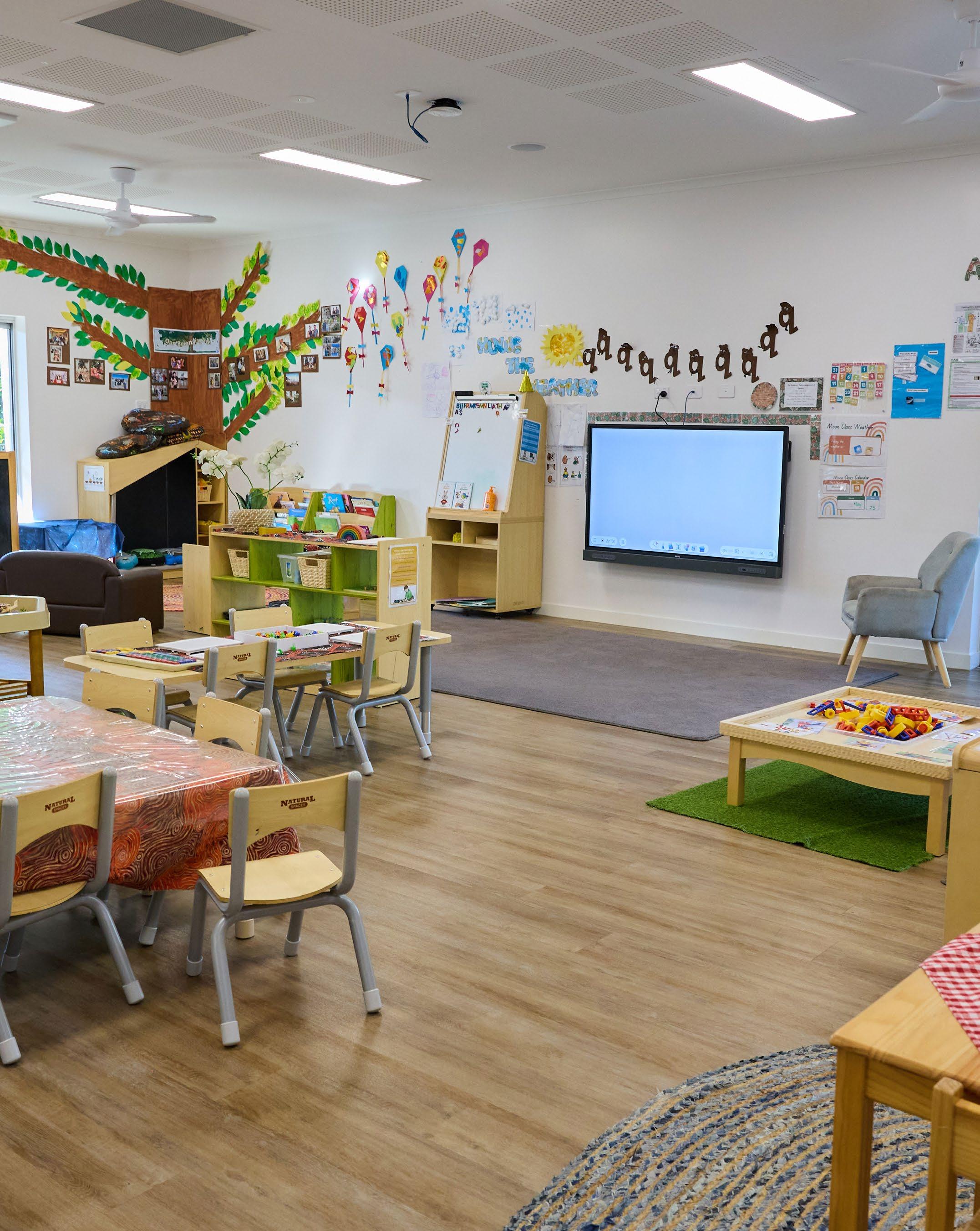
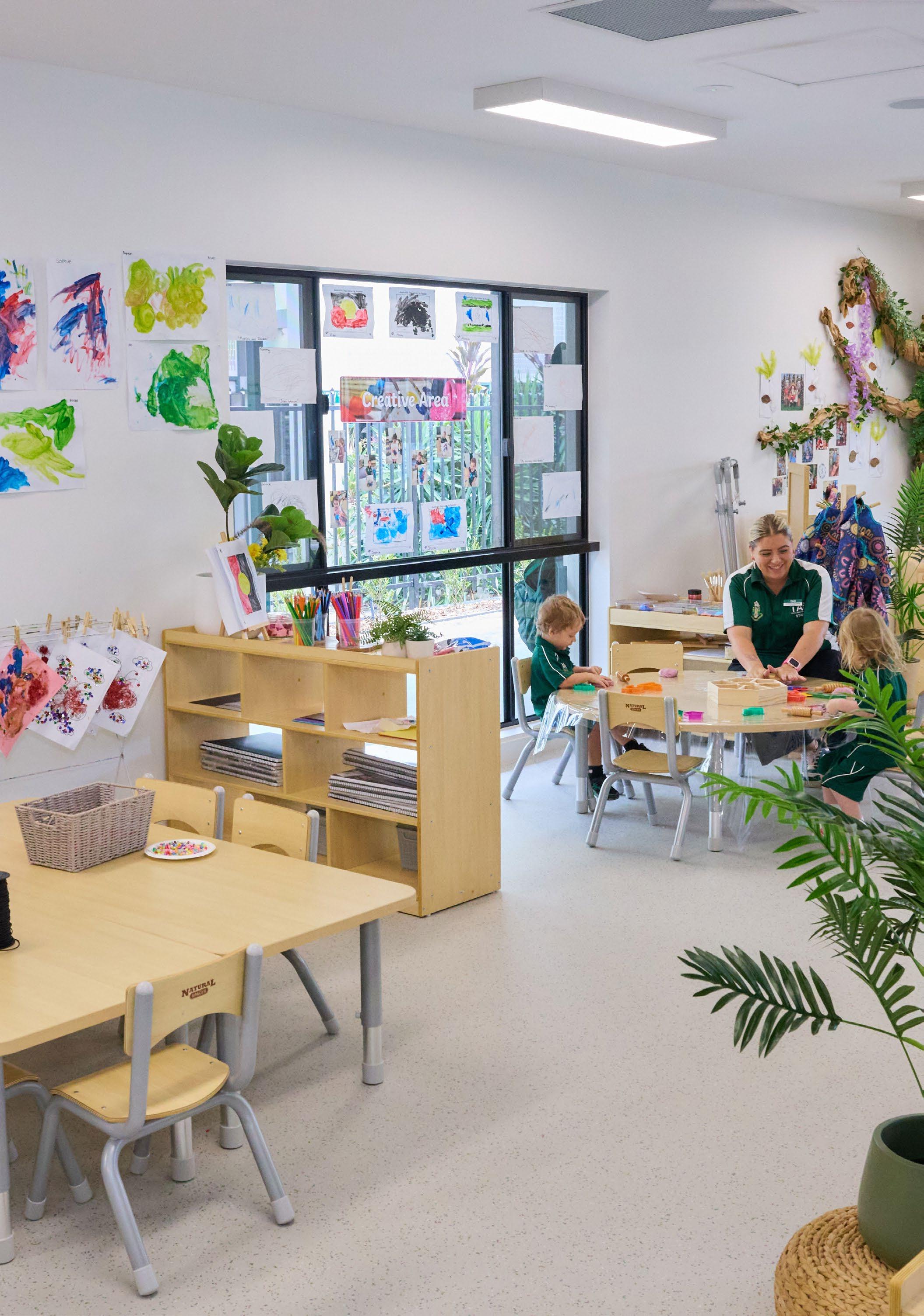
At TAS Early Learning Centre, we are committed to protecting the privacy and confidentiality of all children, families, and staff. We follow strict policies and procedures to ensure that personal information is handled responsibly and with the highest level of care.

To plan and deliver quality programs for your child, we collect information directly from families. This information enables us to work in partnership with you to best support your child’s learning and wellbeing. Personal information is never shared with other individuals or organisations without your consent unless required by law. Similarly, we will not request personal information from third parties without your permission.
Families may view or request a copy of their child’s records at any time.
Our Privacy and Confidentiality Policy outlines how the Service upholds the Australian Privacy Principles and the Privacy Act 1988, ensuring that all personal information is securely stored and managed in accordance with the Education and Care Services National Regulations.
All educators understand their obligations under the Notifiable Data Breaches (NDB) Scheme and follow clear procedures to manage any privacy concerns. Complaints relating to privacy are handled promptly and consistently under our Complaints Handling Policy.
In line with legislative requirements, the Service maintains detailed records relating to children, parents, and staff. These records are stored securely and retained for the prescribed periods in accordance with the National Law and Regulations and Family Assistance Law. Records include child enrolment and attendance details, medical and medication records, incident and illness reports, child assessments, and other relevant legal documentation.
For more information, please refer to our Record Keeping and Retention Policy available at your Centre.
